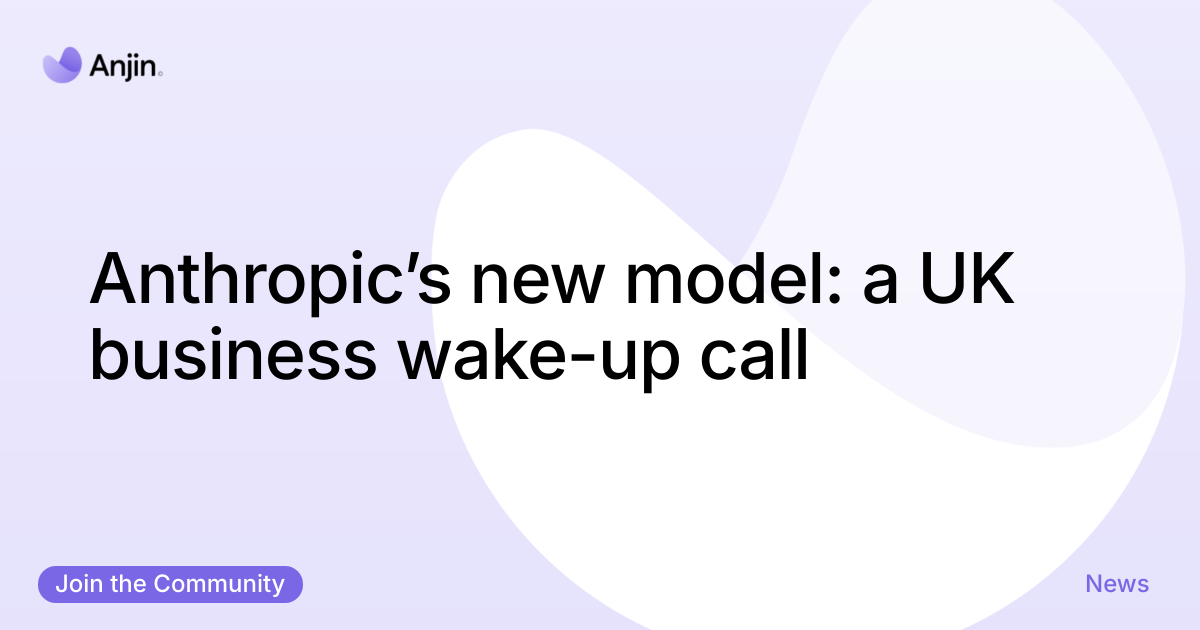
Anthropic has released a high-performing AI model that UK businesses must assess immediately. This launch shifts competitive dynamics and demands fast strategic decisions.

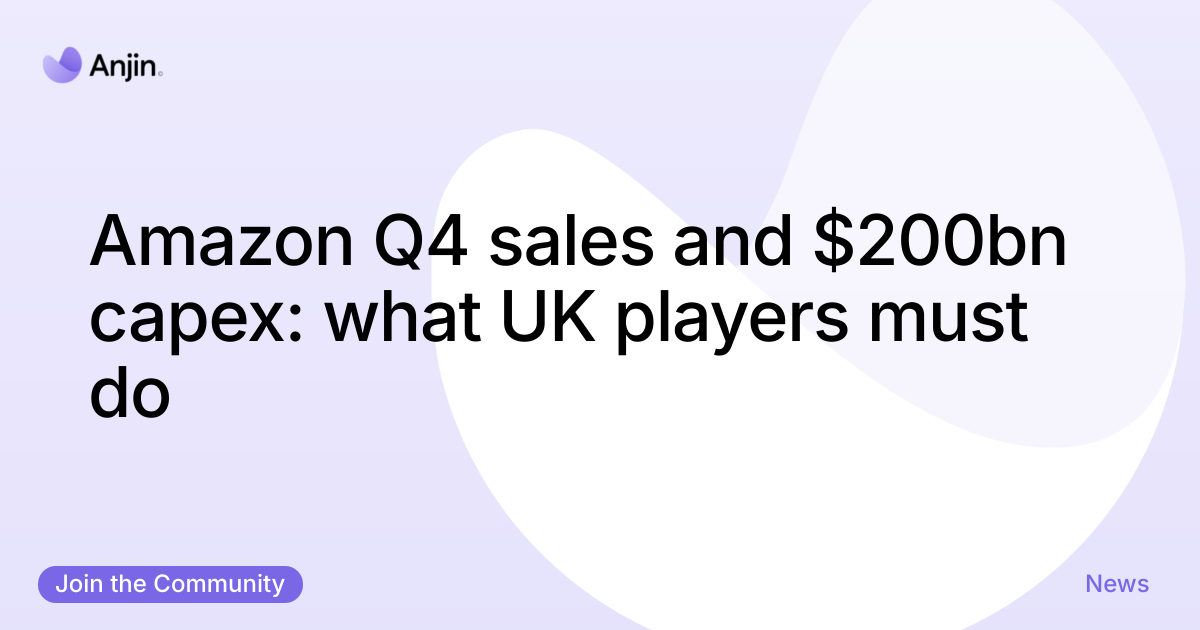
Amazon Q4 sales and its $200bn capex plan land squarely in the United Kingdom conversation. This split between strong demand and heavy spending forces a clear strategic choice.

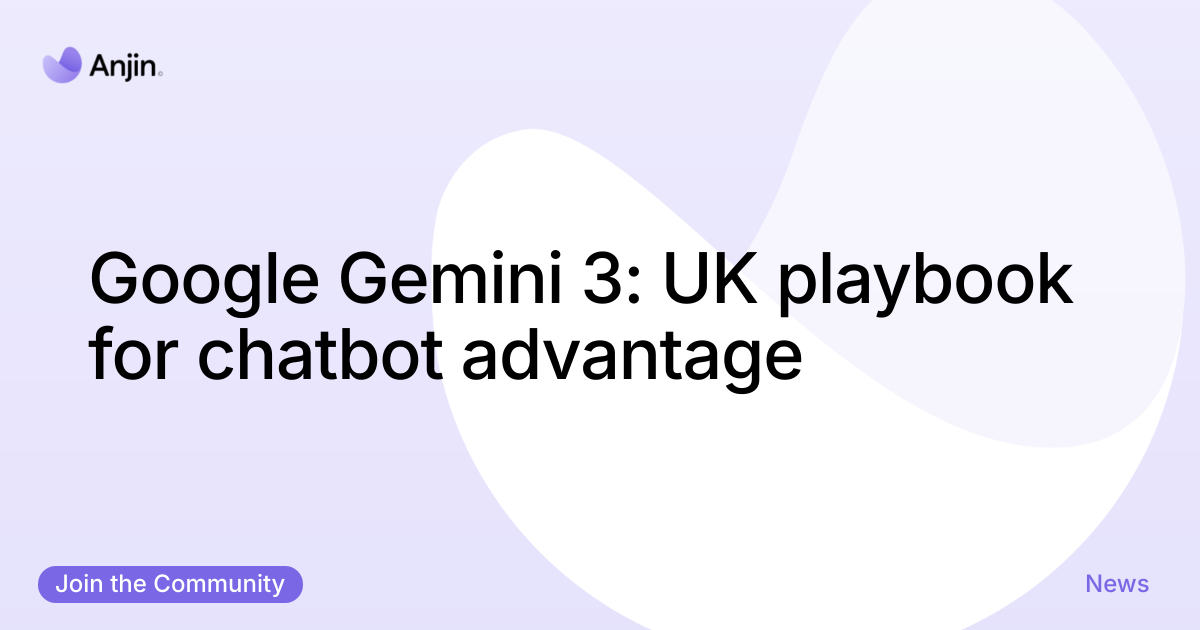
Google Gemini 3 and the United Kingdom are now centre-stage in the race for conversational AI dominance. This shift forces businesses to rethink customer experience, compliance and competitive advantage. Time to move before expectations reset.

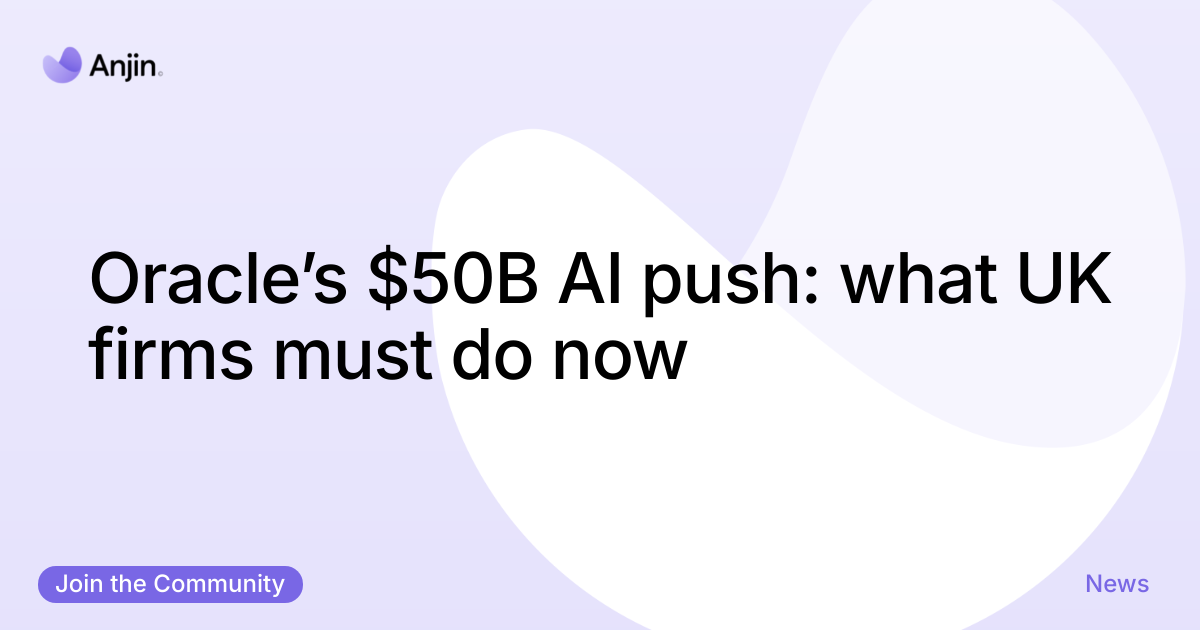
Oracle in UK has unveiled a sweeping fundraising plan to scale AI data centre capacity. The move forces enterprise IT leaders to reassess cloud strategy and risk.

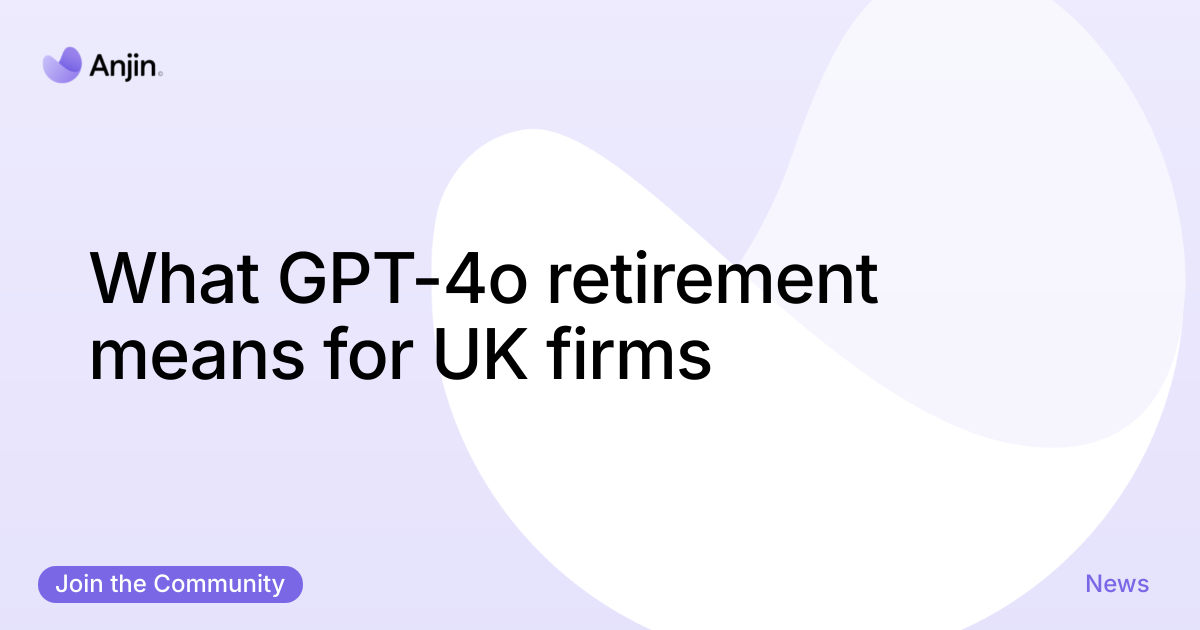
GPT-4o retirement in the UK is reshaping vendor choices and product roadmaps for technology decision-makers at UK businesses. The shift demands swift technical audits and pragmatic migration plans; time to act is now.

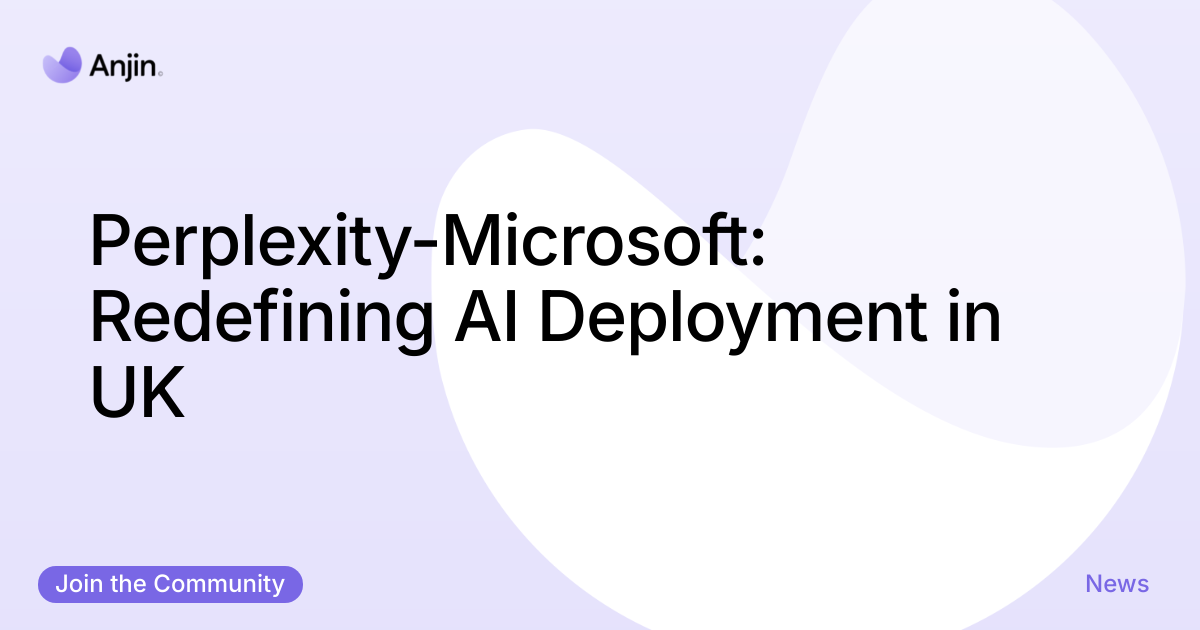
In UK, Perplexity has sealed a $750m, three-year deal with Microsoft to deploy AI models via Azure Foundry. Expect accelerated enterprise rollouts and fresh governance questions.

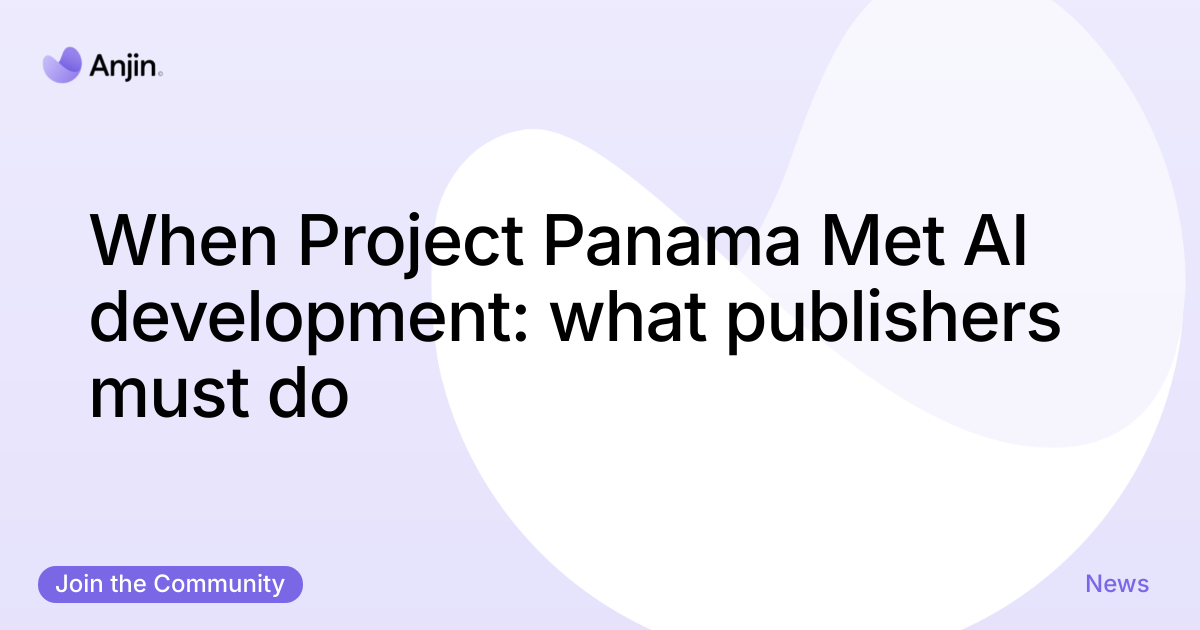
AI development in the UK has collided with publishing via Anthropic’s Project Panama. The plan to scan millions of books exposes rights, reputation and regulatory risk. Time to act decisively.

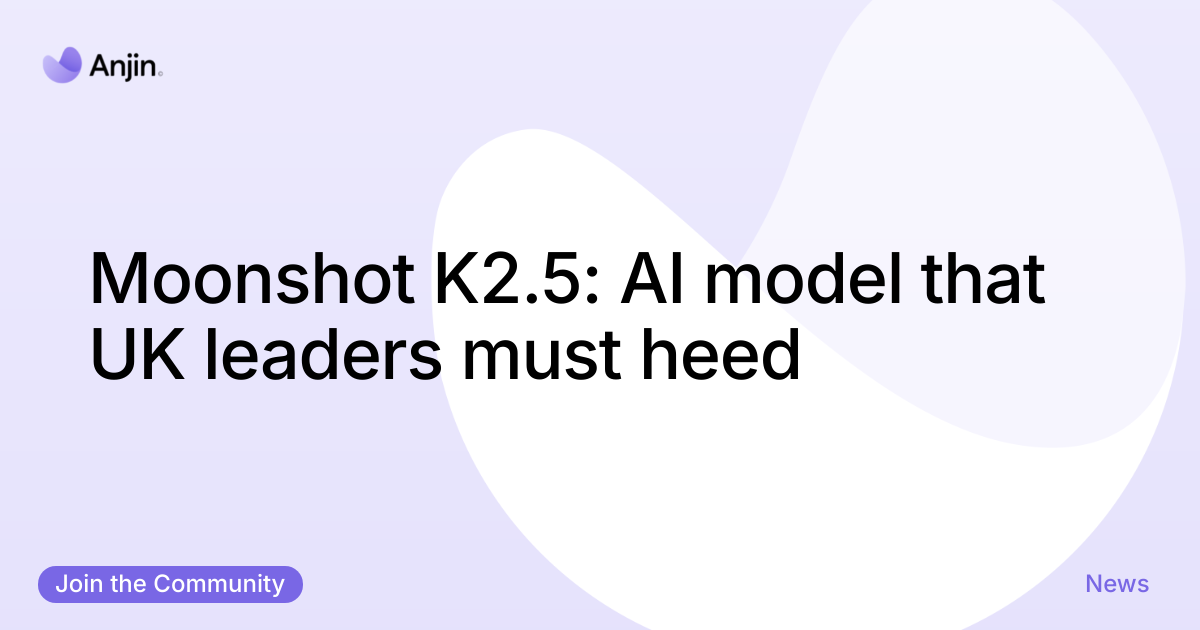
AI model K2.5 has pushed China’s Moonshot to the centre of UK boardroom debates. The launch forces fast strategic choices; miss one and rivals widen the gap.


In the UK, Inferact lands $150M to commercialise vLLM for broader business use. This funding could reshape access to high-performance open-source AI — act quickly.

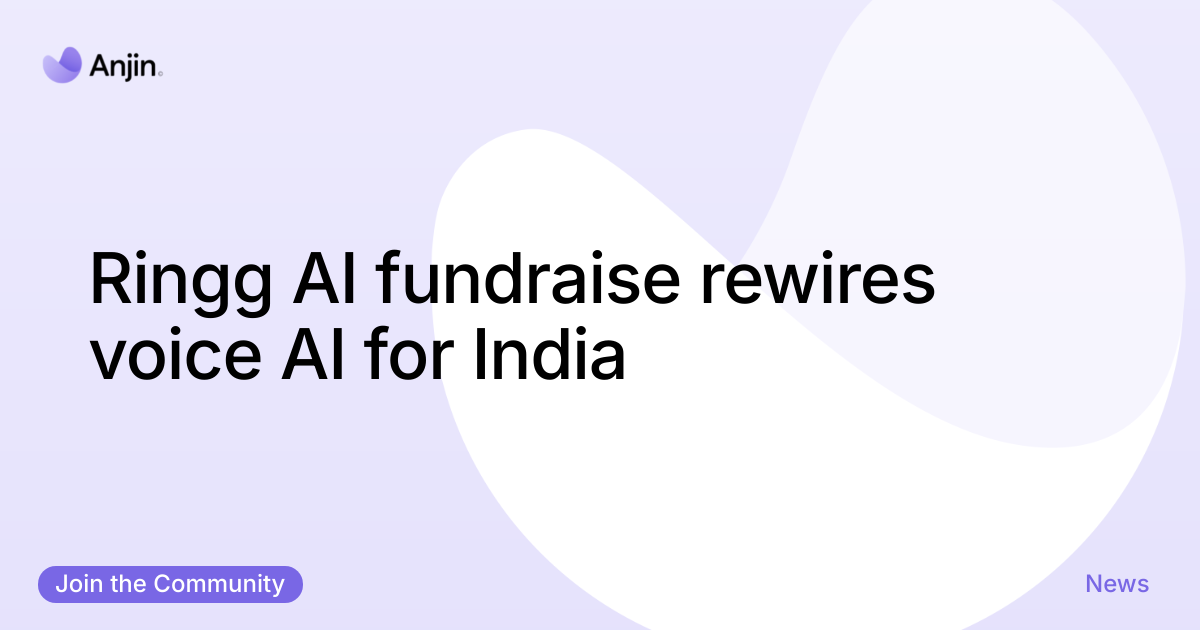
Ringg AI in India has closed a $5.5m funding round that sharpens the case for voice AI across enterprises. Expect faster product rollouts and clearer ROI for customer experience teams.

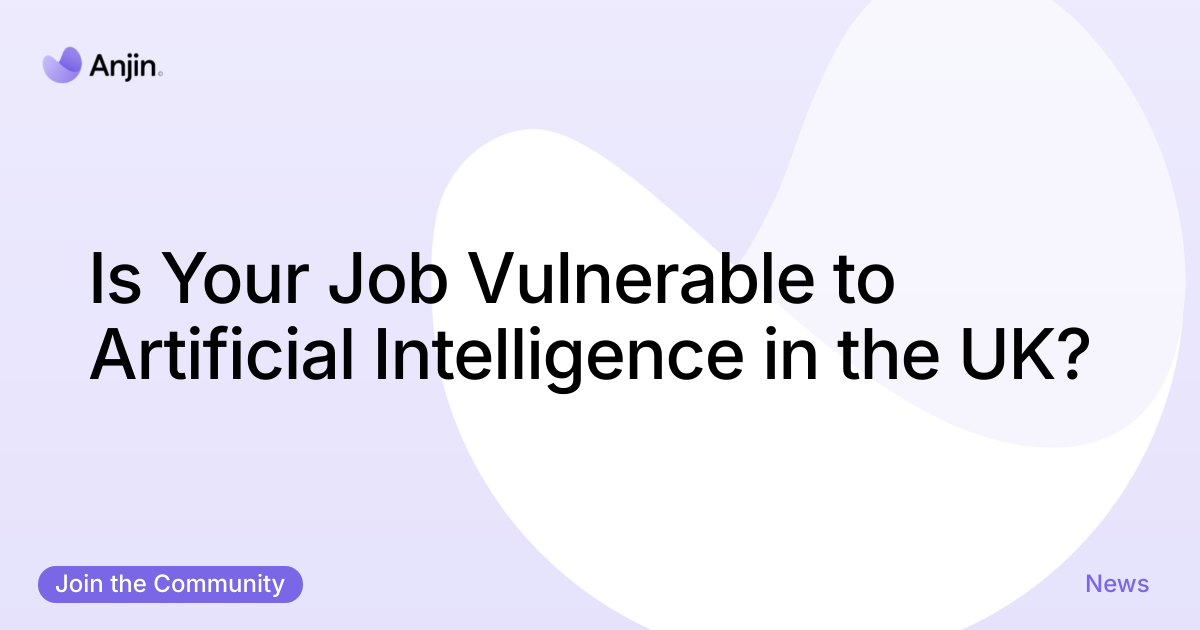
Artificial Intelligence in the UK is reshaping who wins and who retrains across professions. This piece shows practical moves to protect your career and seize advantage.

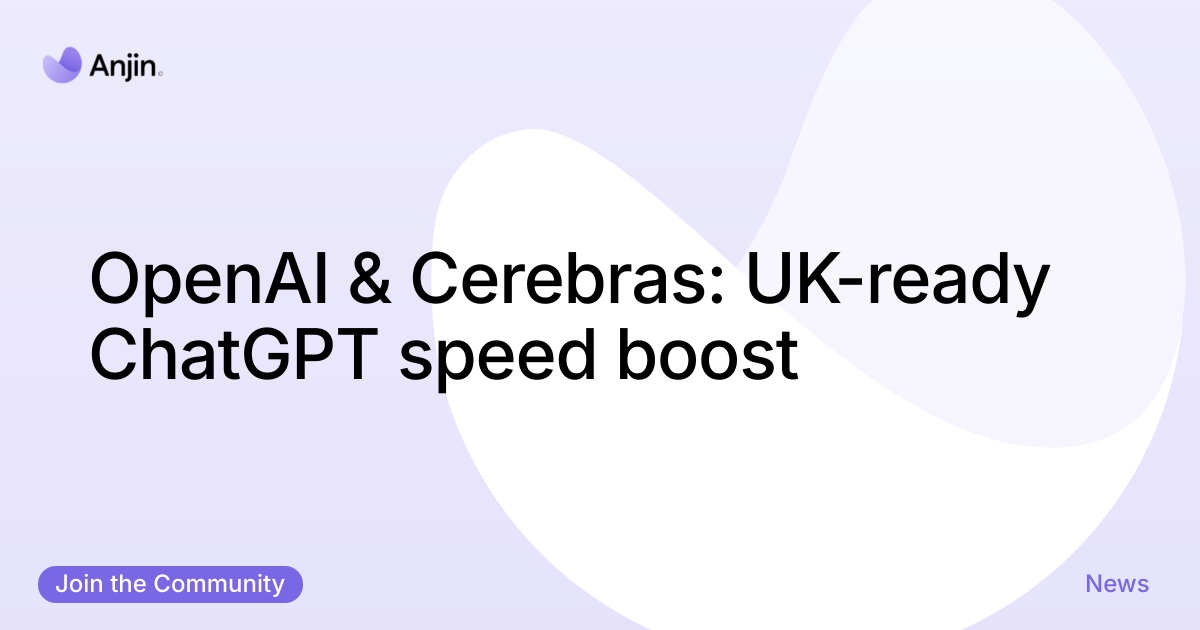
OpenAI in the UK is pursuing near-instant ChatGPT replies via a $10bn partnership with Cerebras Systems. Expect radically shorter waits and new business workflows across enterprise technology teams — fast, practical change.

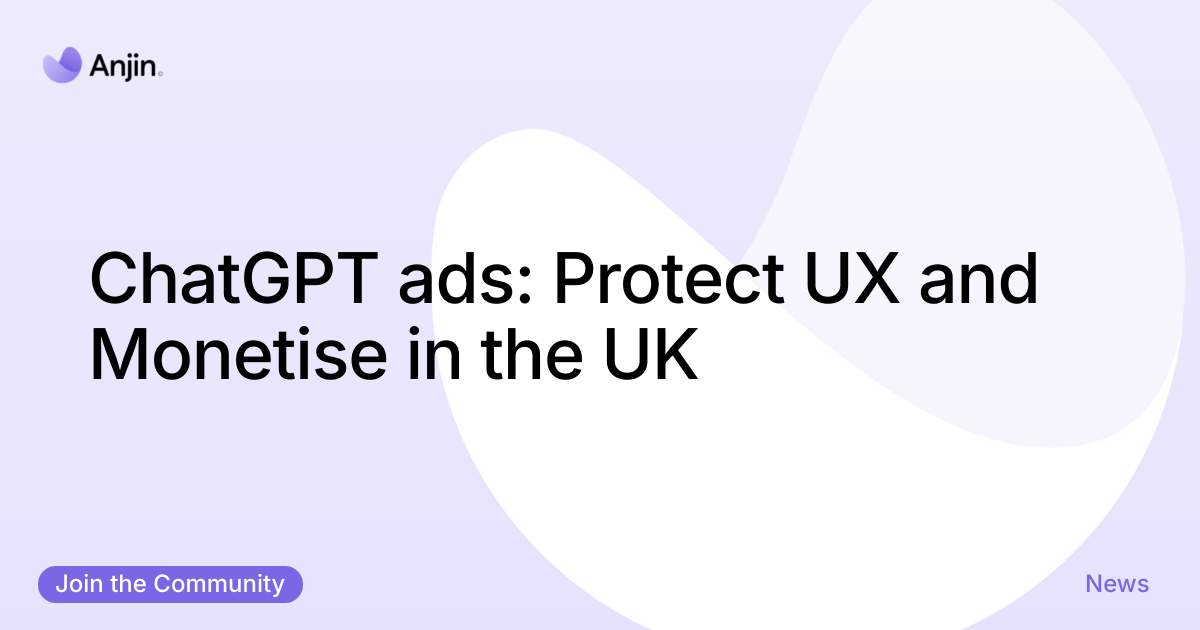
ChatGPT ads in the UK are rolling out, shifting expectations for AI assistants and user experience. Marketers face an opening; product teams must decide whether to serve customers or sell to them.

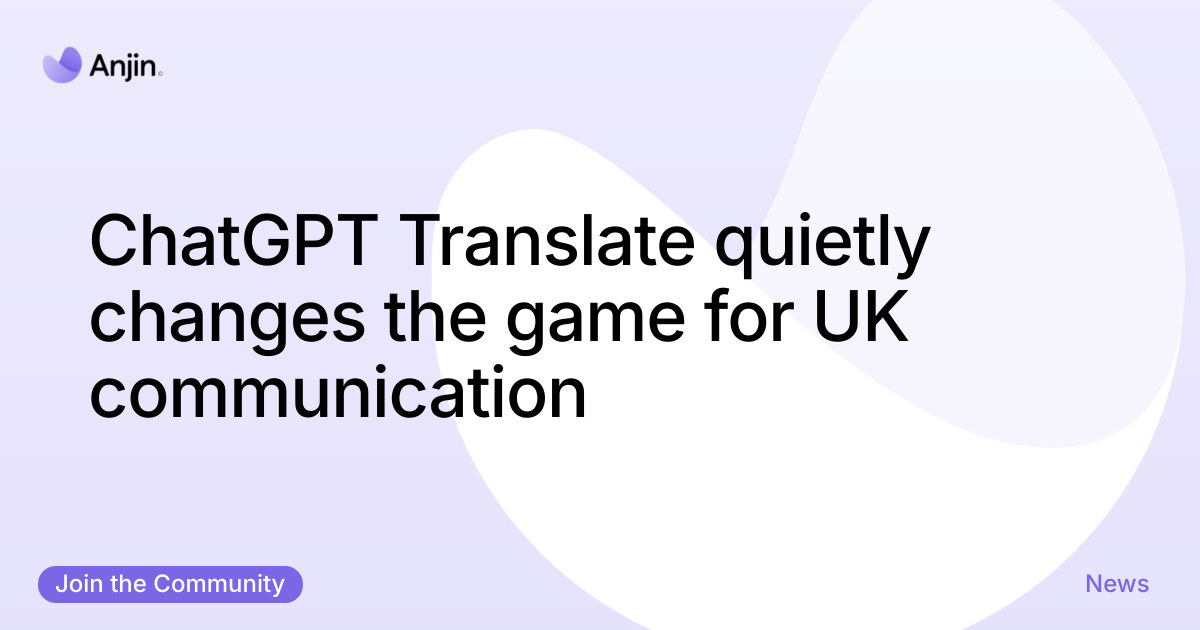
ChatGPT Translate lands in the UK with a free, standalone interface that flattens language barriers for businesses. The stealth rollout hints at a prototype phase, but the potential is already clear.

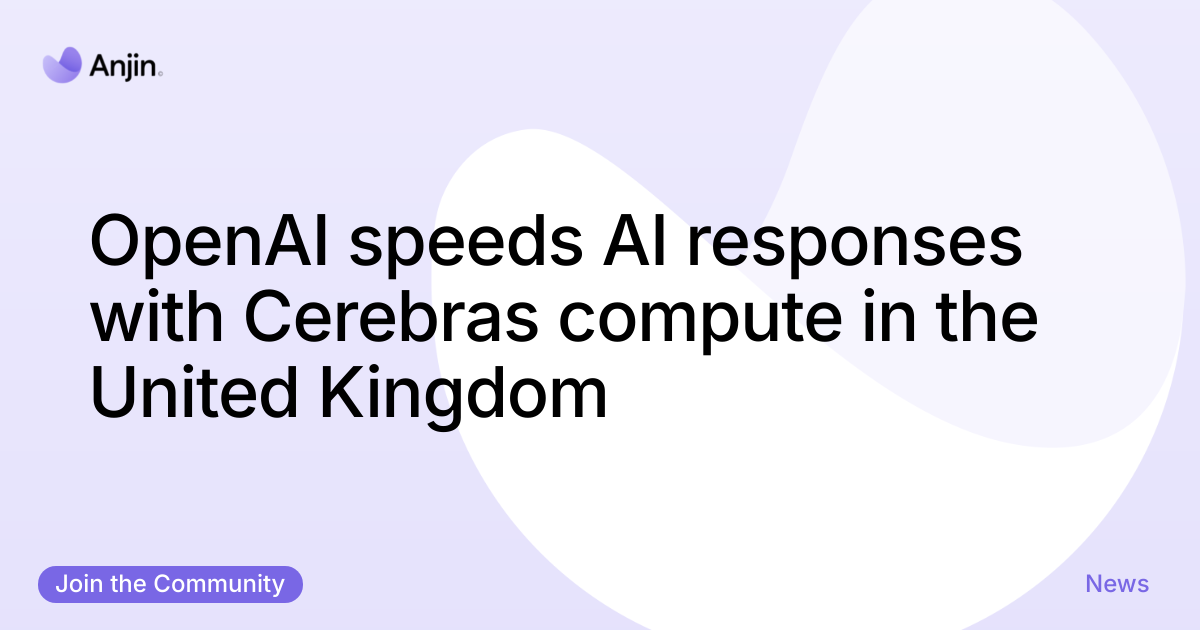
OpenAI and the United Kingdom are at the centre of a compute-driven acceleration in AI performance. OpenAI’s deal with Cerebras promises faster model responses and fresh business advantages.

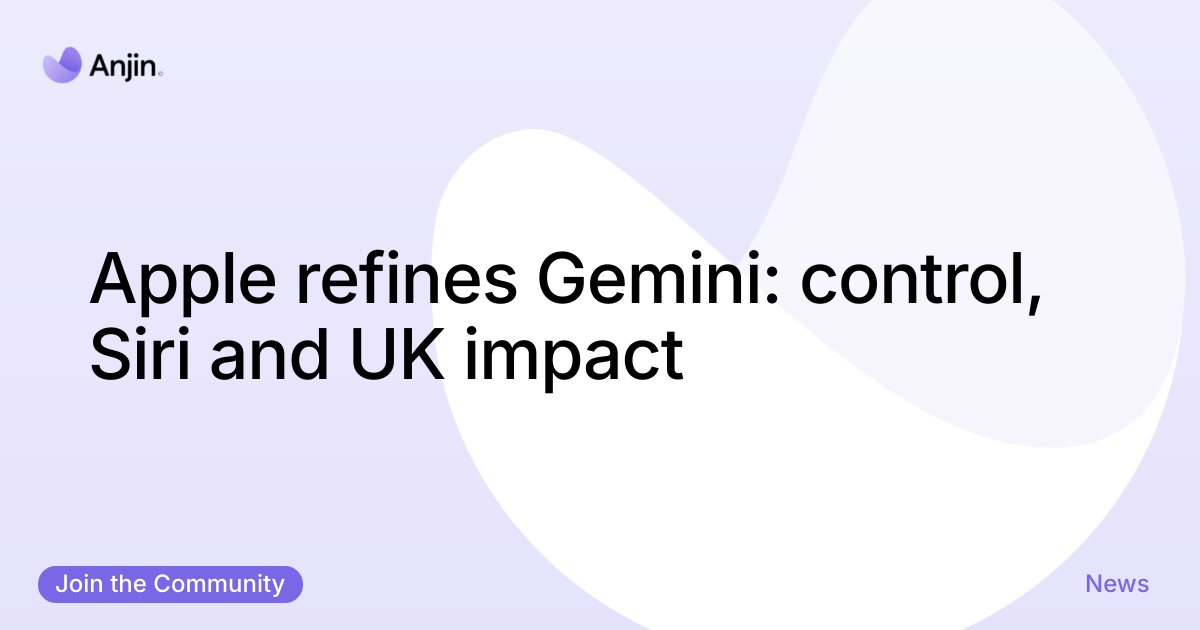
Gemini and the UK are at the centre of Apple’s next AI move. Apple will fine-tune Gemini to power Siri while avoiding Google branding. Expect tighter control and clearer differentiation.

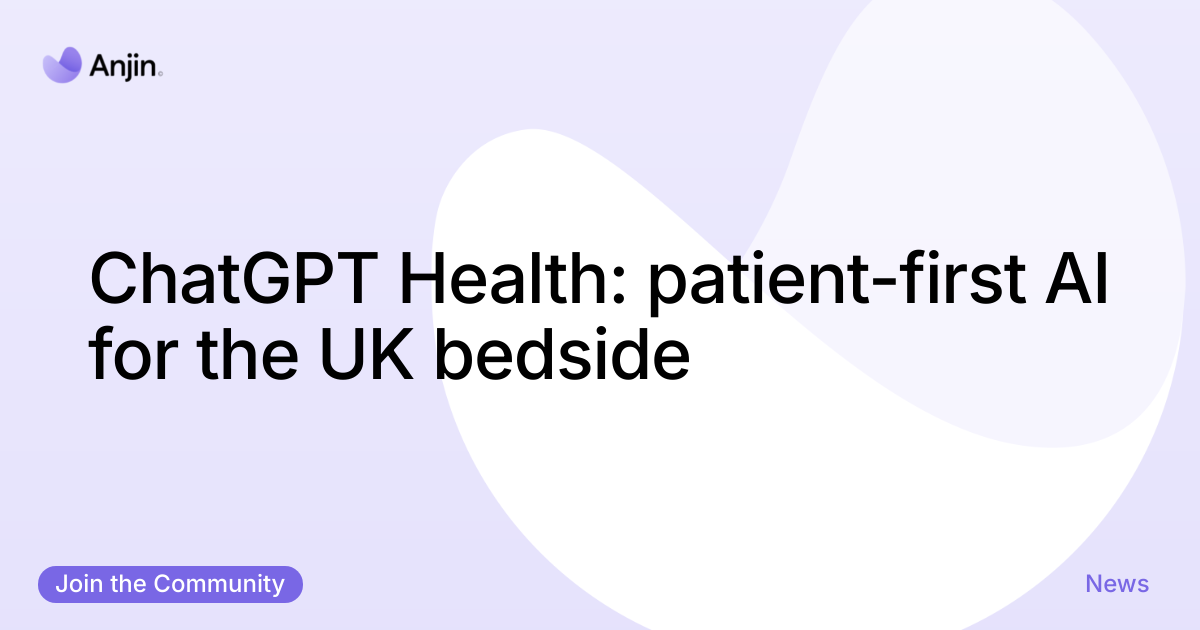
ChatGPT Health lands in the UK as a patient-facing AI tool promising clearer medical guidance and lab-result interpretation. It decodes jargon, organises clinical history and nudges patients toward informed conversations with clinicians. A clear turning point.

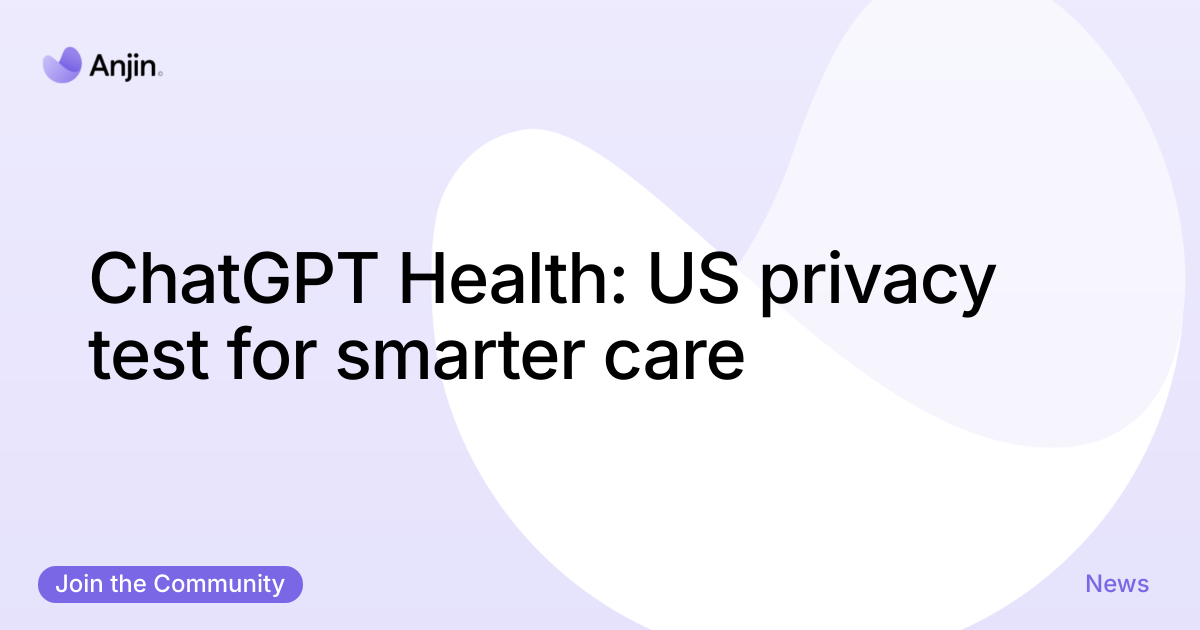
ChatGPT Health has launched in the US, promising personalised healthcare by ingesting medical records and fitness data. The move flips a switch on innovation and privacy in one sweep.


Meta and China sit at the centre of a new cross‑border test for AI deals. The move forces investors to rethink risk and strategy, fast.

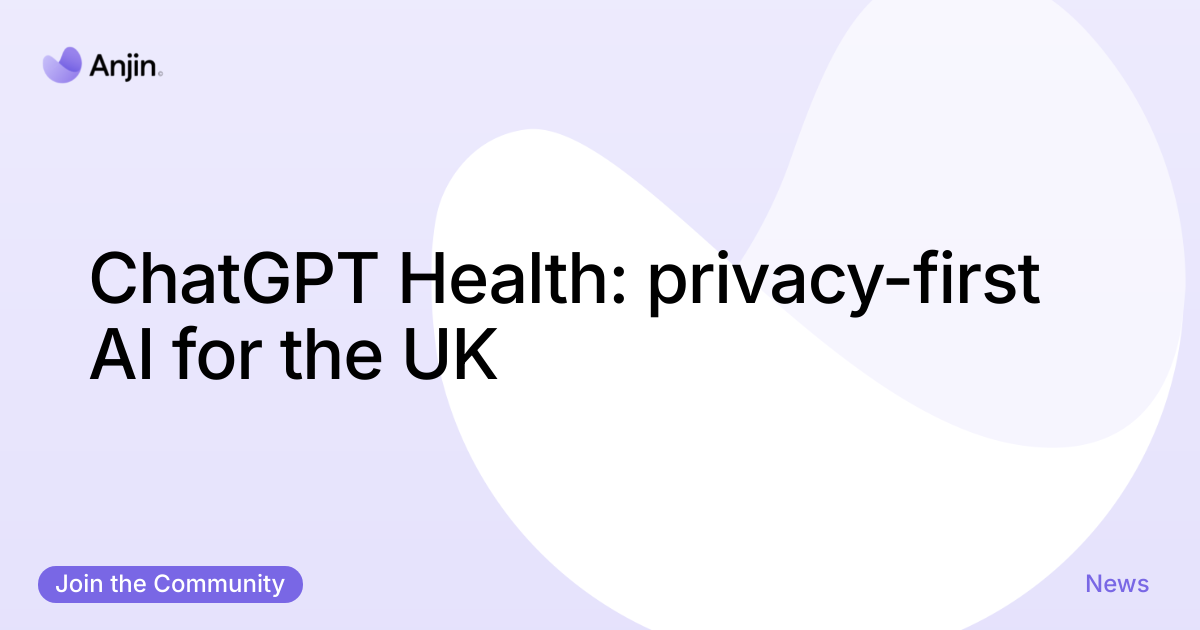
ChatGPT Health in the UK launches an isolated, encrypted space for health chats with optional app data access. OpenAI frames the product as supportive, not diagnostic — privacy reclaimed.


Meta acquisition in China has come under regulatory review, imperilling a $2 billion bet on AI startup Manus. The move signals tougher rules for foreign tech deals in Asia. Read the playbook.

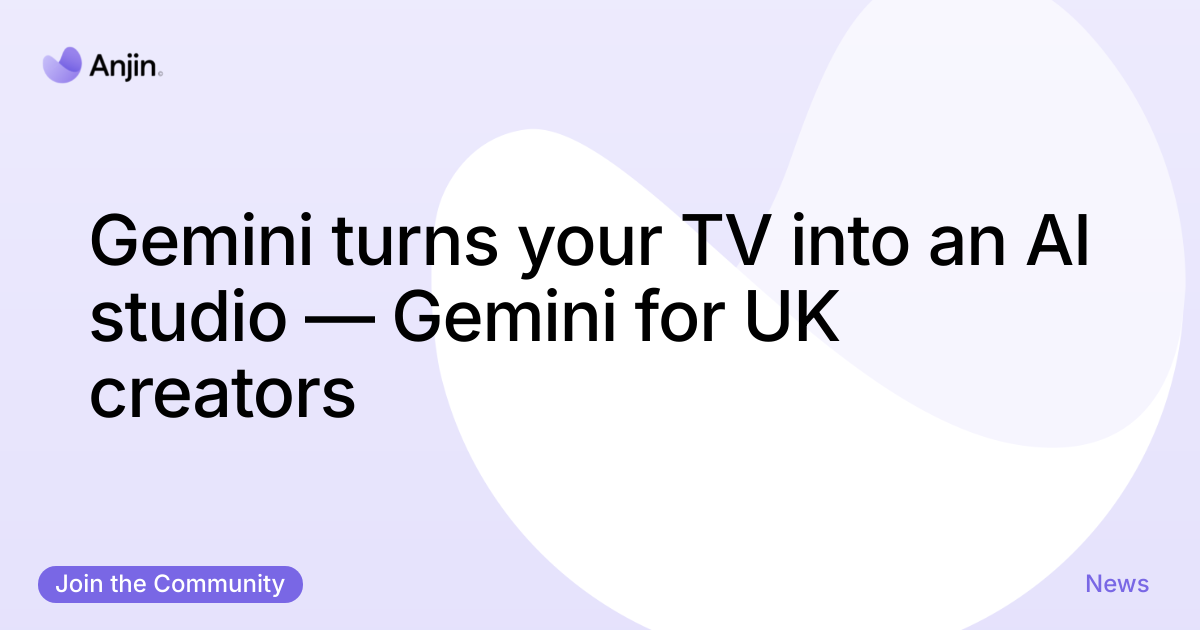
Gemini arrives on Google TV in the United Kingdom as a major upgrade to on‑screen AI. This update adds Nano Banana and voice‑controlled settings that make AI content creation intuitive and immediate. Ready your living room for creativity.

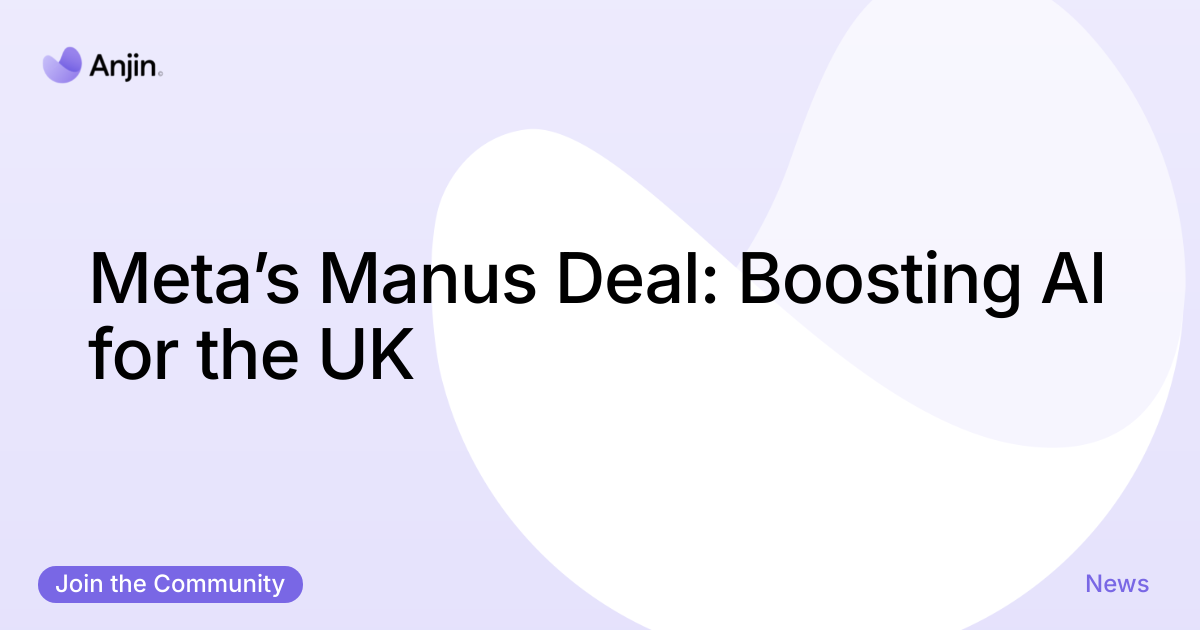
Meta in the UK has acquired Manus to sharpen artificial intelligence across Facebook and Instagram. Expect platform experiences to shift fast; product teams must act now.

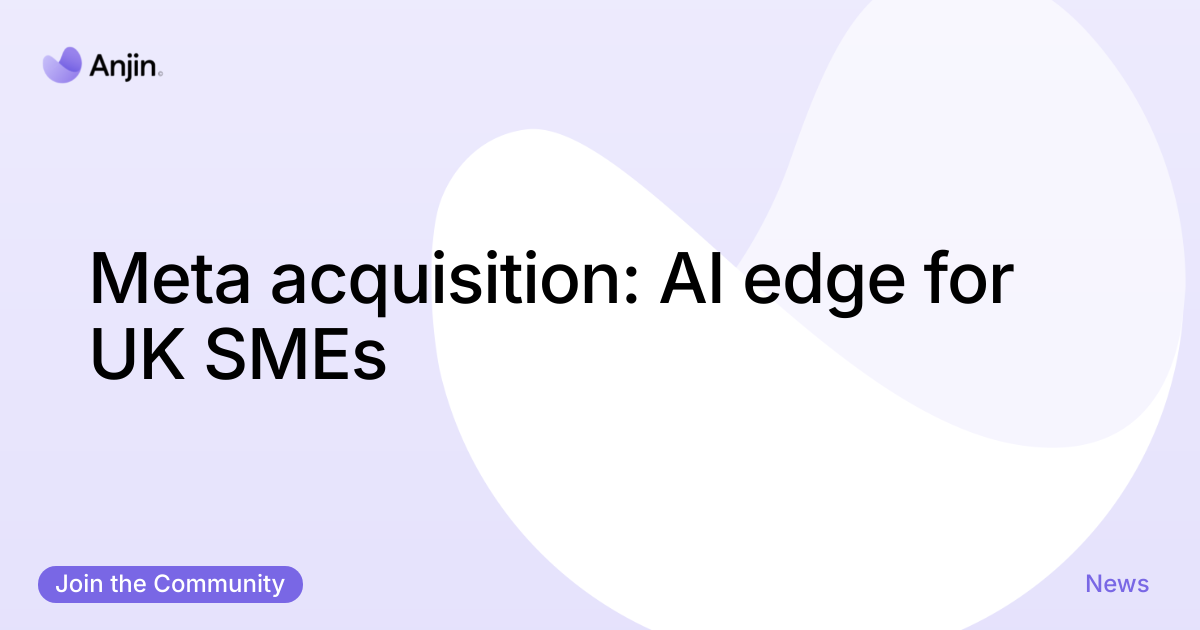
Meta acquisition in UK signals a powerful shift in how small firms buy AI services. The deal fast-tracks tools for customer service and growth across SMEs. Expect sharper competition and faster productisation of business AI.

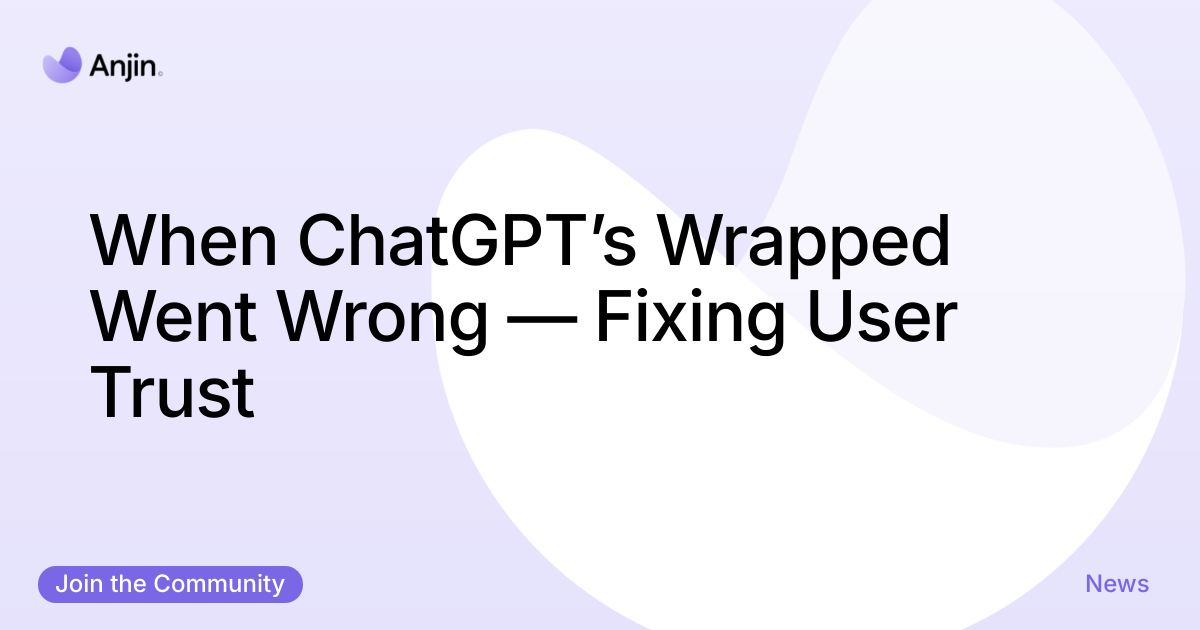
ChatGPT in the UK rolled out a playful year-end recap that missed the mark for many users. The result is an urgent lesson in design, privacy and brand tone.


SoftBank’s funding scramble is already reverberating through UK markets and tech portfolios. The clock is short; strategy and discipline will decide who wins.

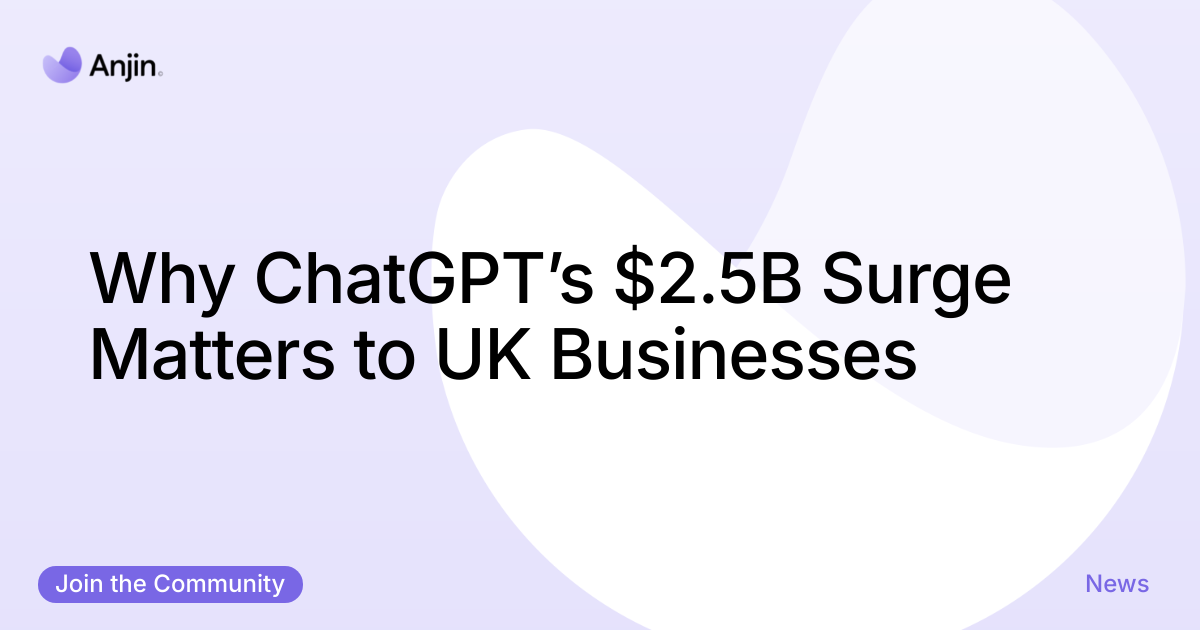
ChatGPT in the United Kingdom hauled in $2.5 billion in consumer spending during 2025. That surge reframes how businesses think about monetising AI and winning customer trust. Here’s what leaders must do next.

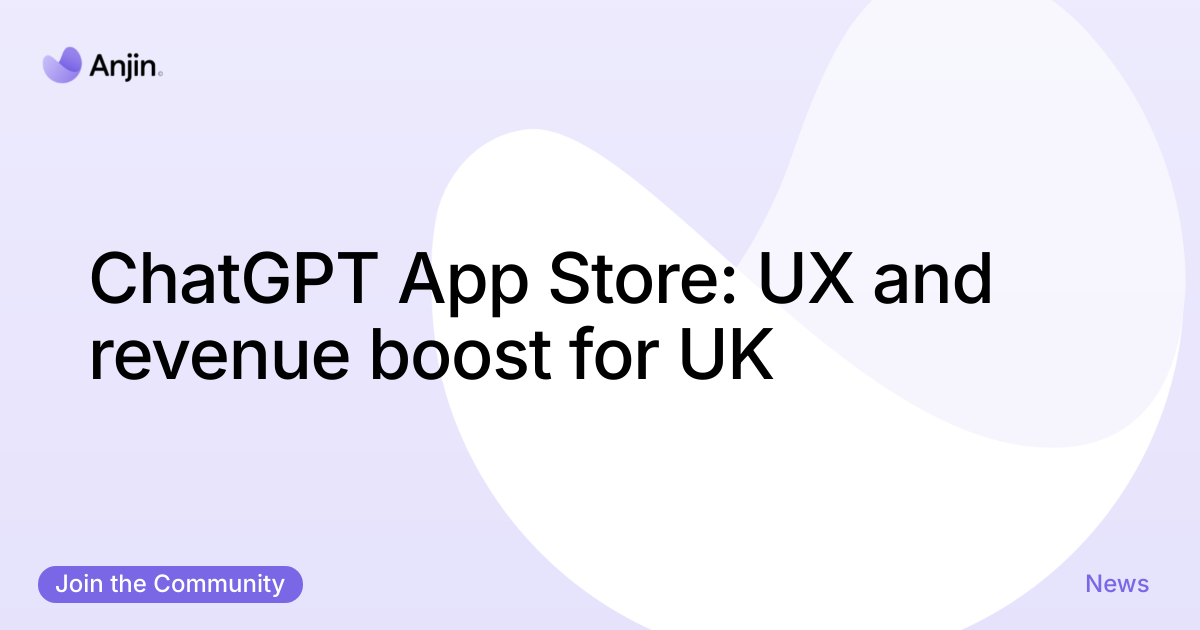
ChatGPT arrives with an App Directory and SDK for the UK, reshaping how assistants plug into tools. Developers and product teams can build interactive experiences inside the bot, unlocking fresh monetisation and UX gains.


Xiaomi R&D investment is poised to influence UK technology strategy after a RMB 200 billion five-year pledge and a $5.6bn next-year boost. Expect a sharper race on MiMo AI models and IoT integration as the kicker.

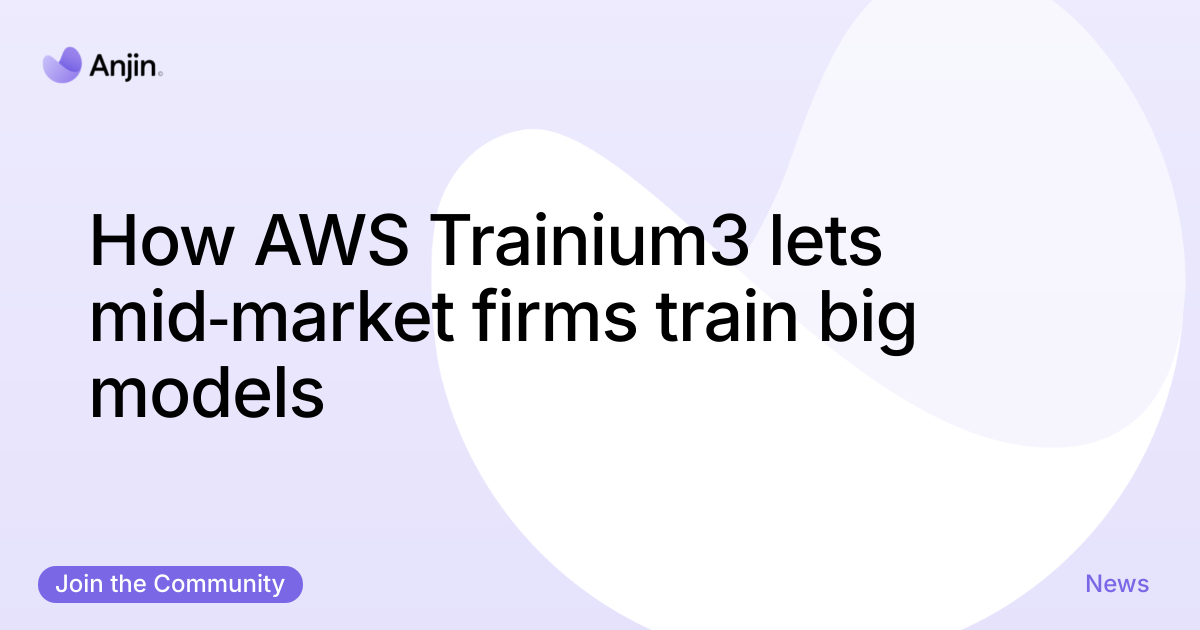
AWS Trainium3 lands in the UK as a game changer for AI training and medium-sized enterprises. The shift means fewer barriers to building custom models — and a sharper competitive edge.

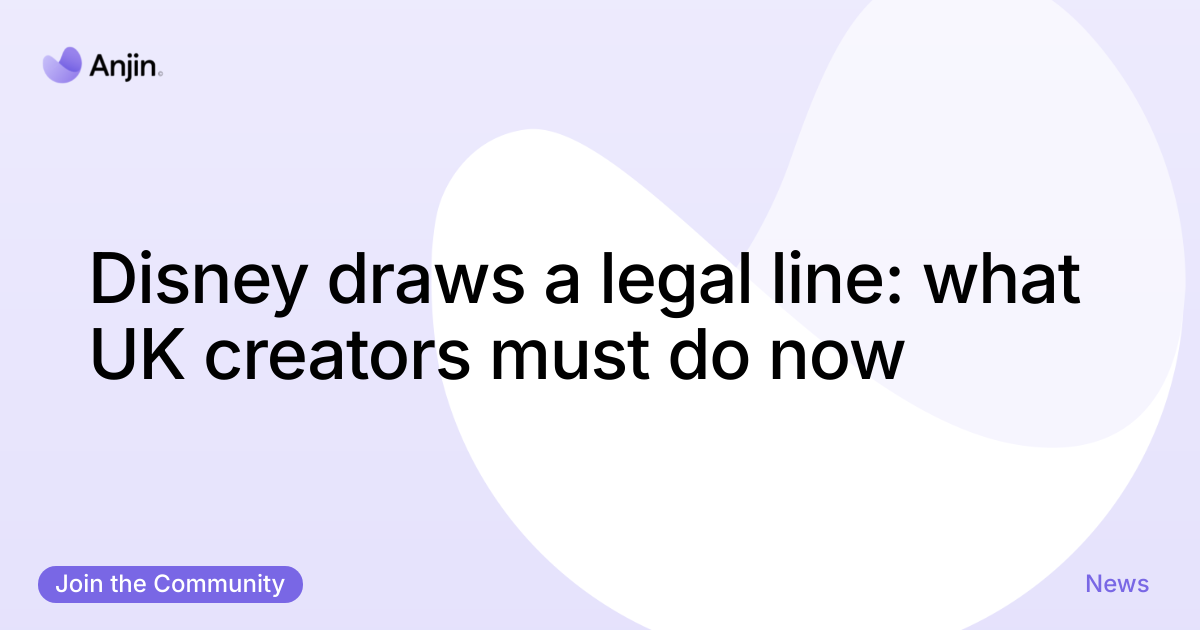
Disney in the UK has begun striking down unauthorised AI videos, reshaping content rights and platform liability. This escalation demands immediate strategy and a sharper compliance playbook.

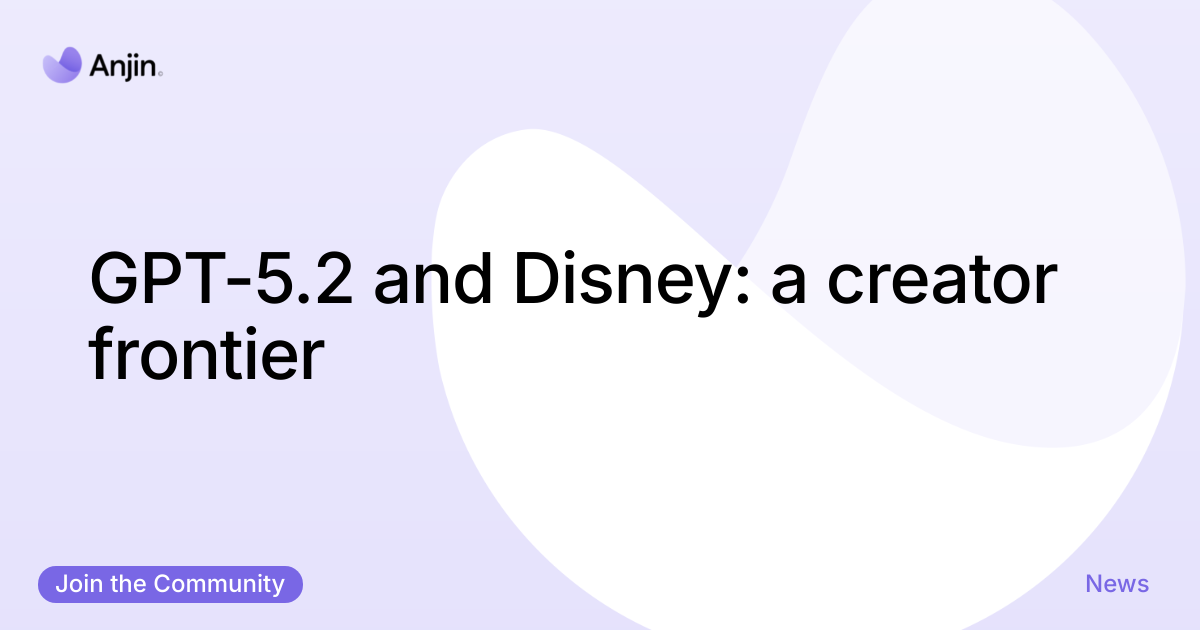
GPT-5.2 arrives in the UK as a generational leap for creators and media firms. It promises better object recognition, fewer hallucinations and new Disney-powered rights for video makers. Prepare to rethink what a creator can make.

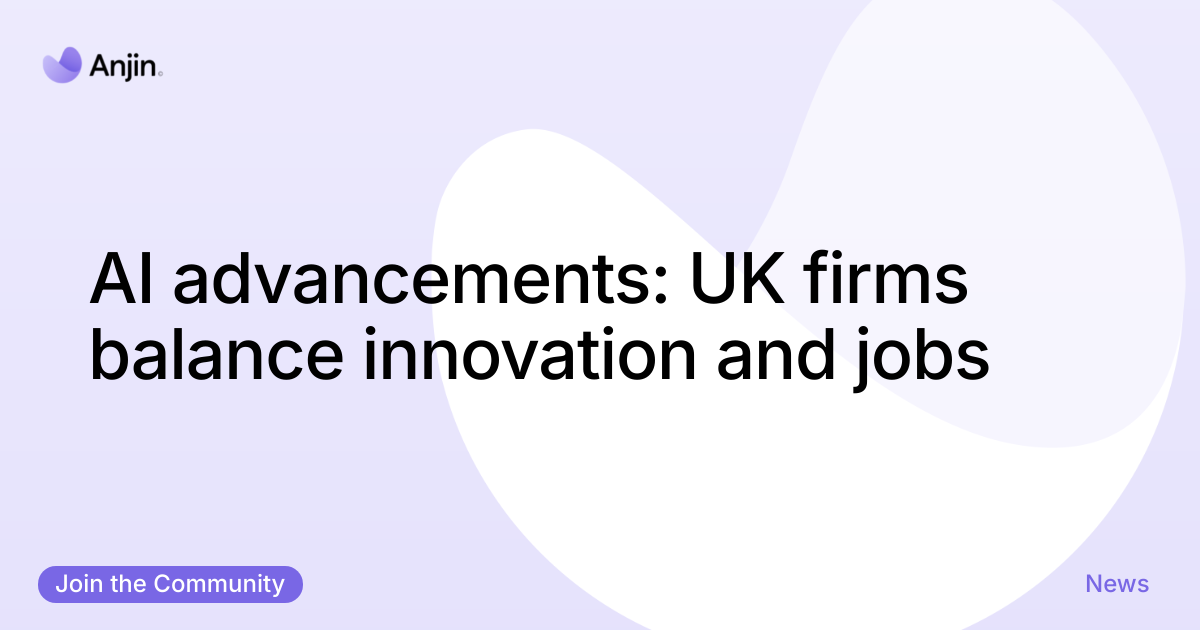
AI advancements UK are rewriting firms’ playbooks and reheating debate about jobs and regulation. Businesses must move fast, but not recklessly.

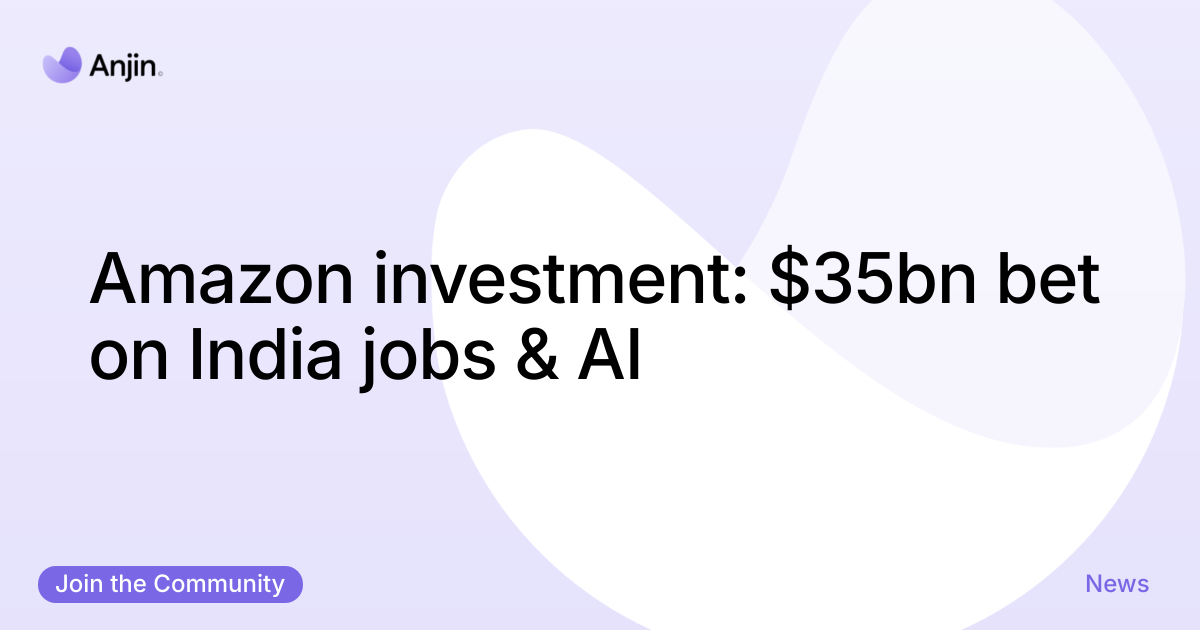
Amazon investment in India lands as a game-changing commitment to AI and logistics. The $35 billion plan promises technology upgrades and one million new jobs; here's the kicker.

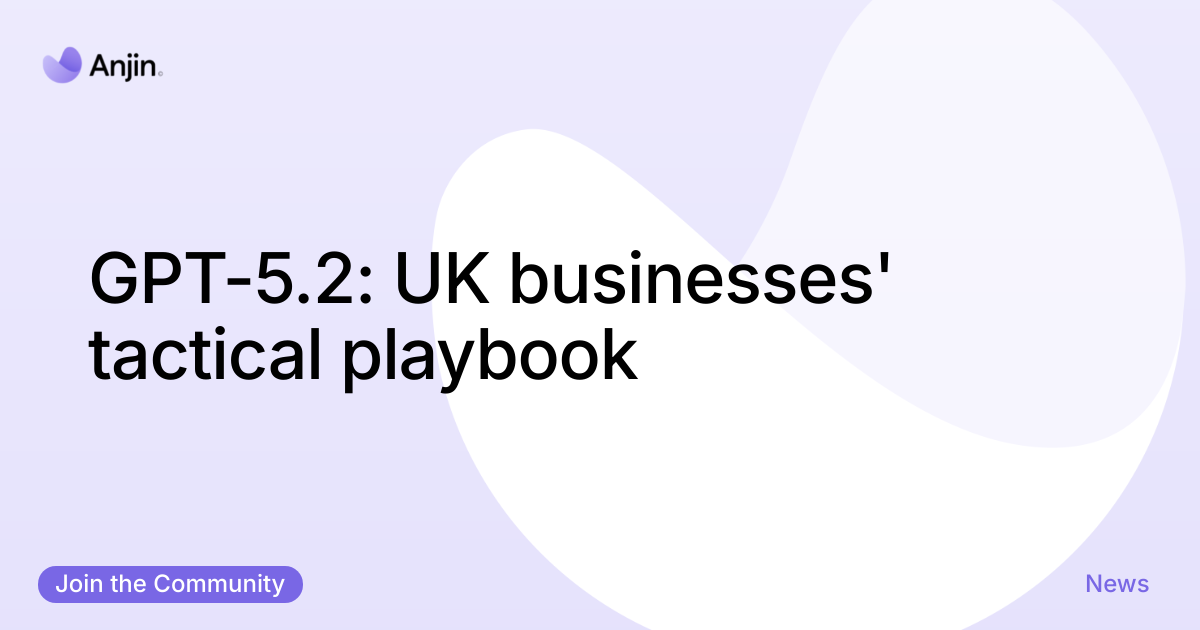
GPT-5.2 arrives as OpenAI rushes to reclaim lead, and UK product teams must reassess AI roadmaps. Ready your data, controls and pilots—this moment demands decisive action.

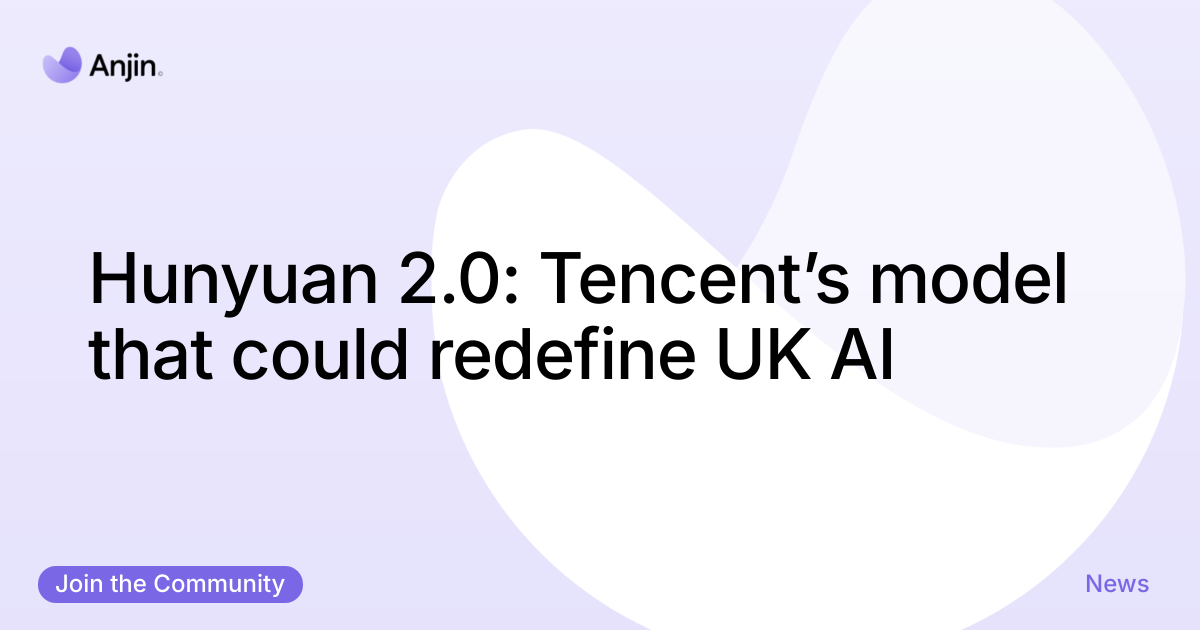
Hunyuan 2.0 arrives as a topic of interest for United Kingdom technology leaders and enterprises alike. Expect sharper performance, bigger scale and new commercial choices.

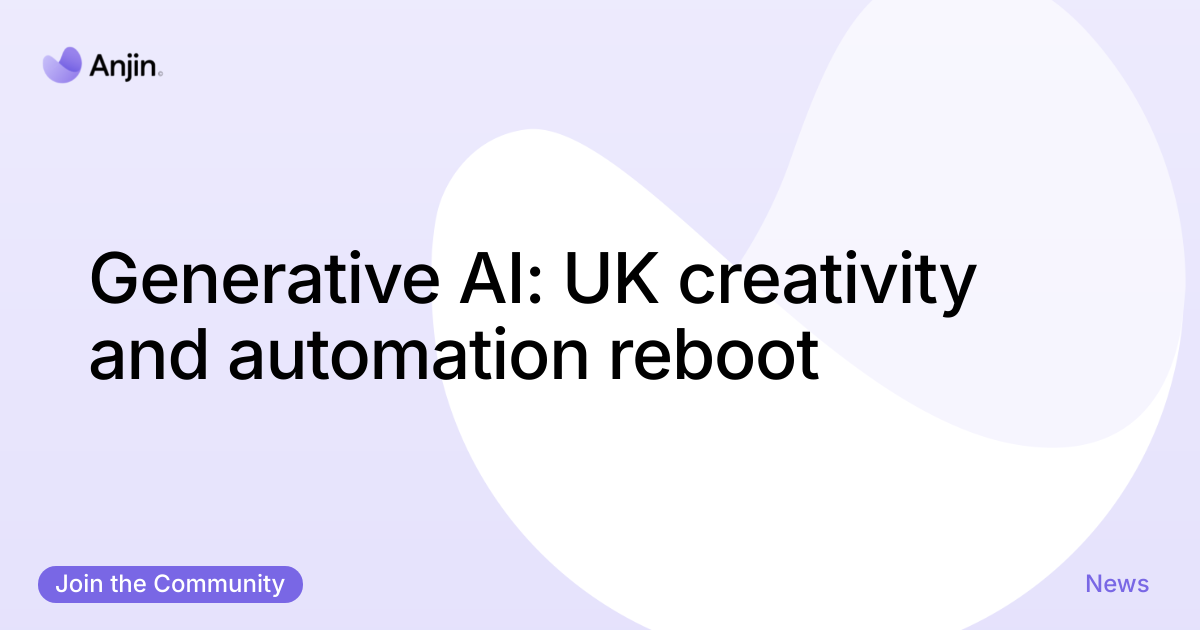
Generative AI is remaking creative and automation workflows across the UK. Businesses face a choice: adopt to compete or fall behind. Here’s the kicker.

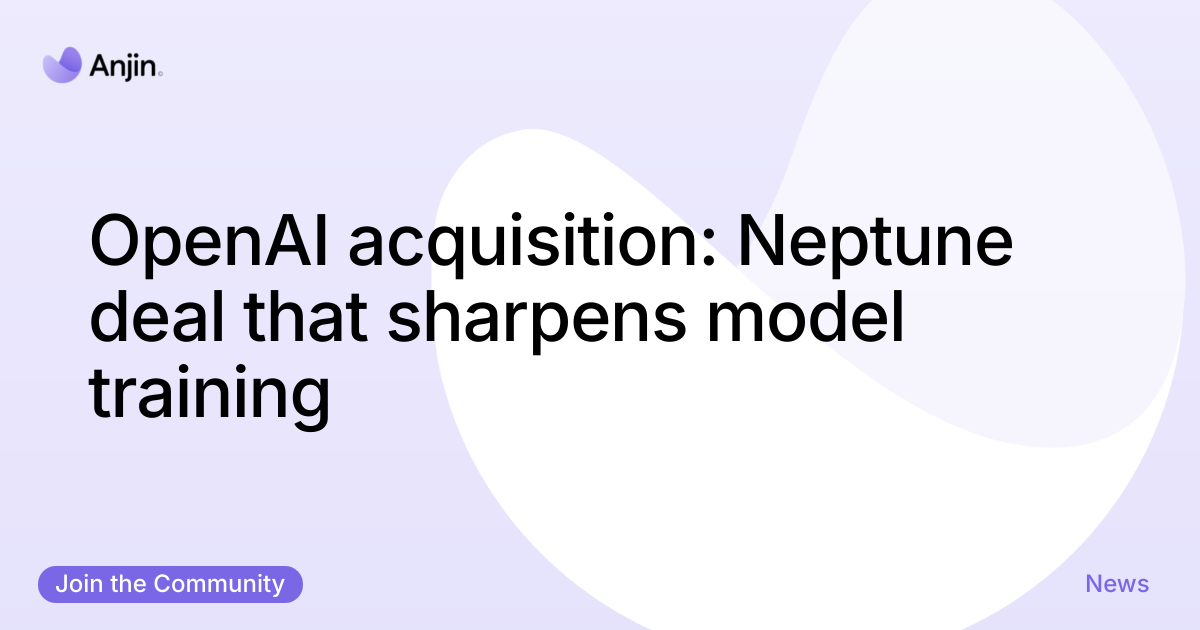
OpenAI acquisition and the UK collide in a deal that could speed and stabilise model training for enterprise teams. This strategic move tightens training control and raises the stakes.

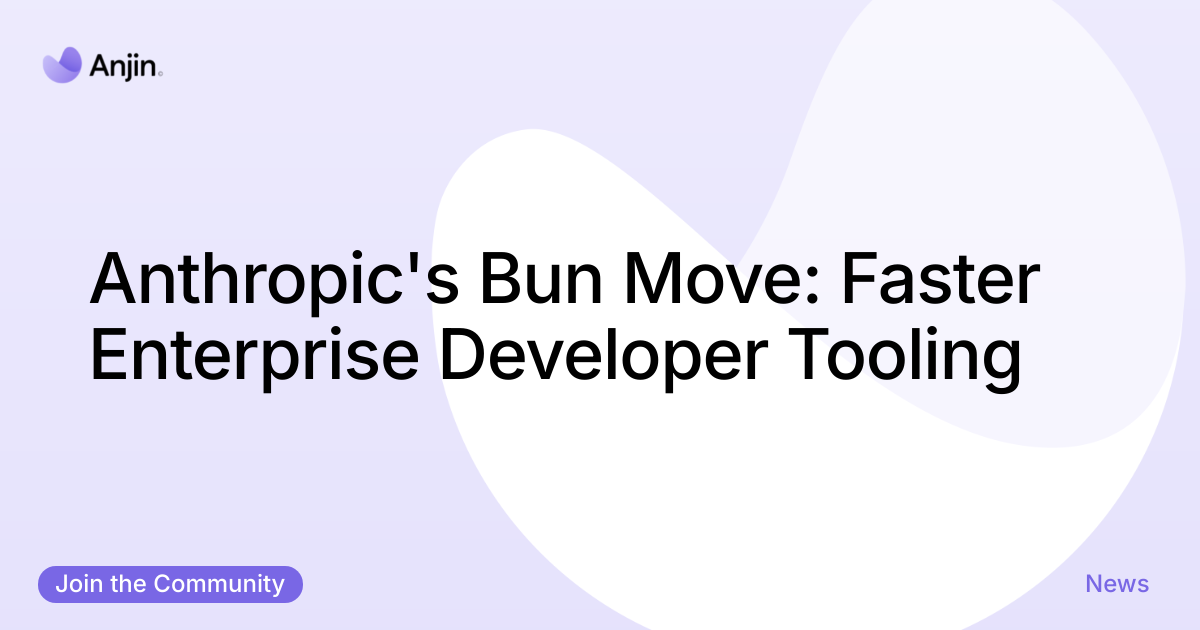
Anthropic in the UK has acquired Bun to accelerate enterprise developer tooling and the Claude Code agent. This purchase could redraw the map for developer productivity.


OpenAI and the UK sit at the centre of a debt-driven buildout that could remake AI infrastructure and competition. This story matters to enterprise leaders who must decide whether to partner, compete or hedge.

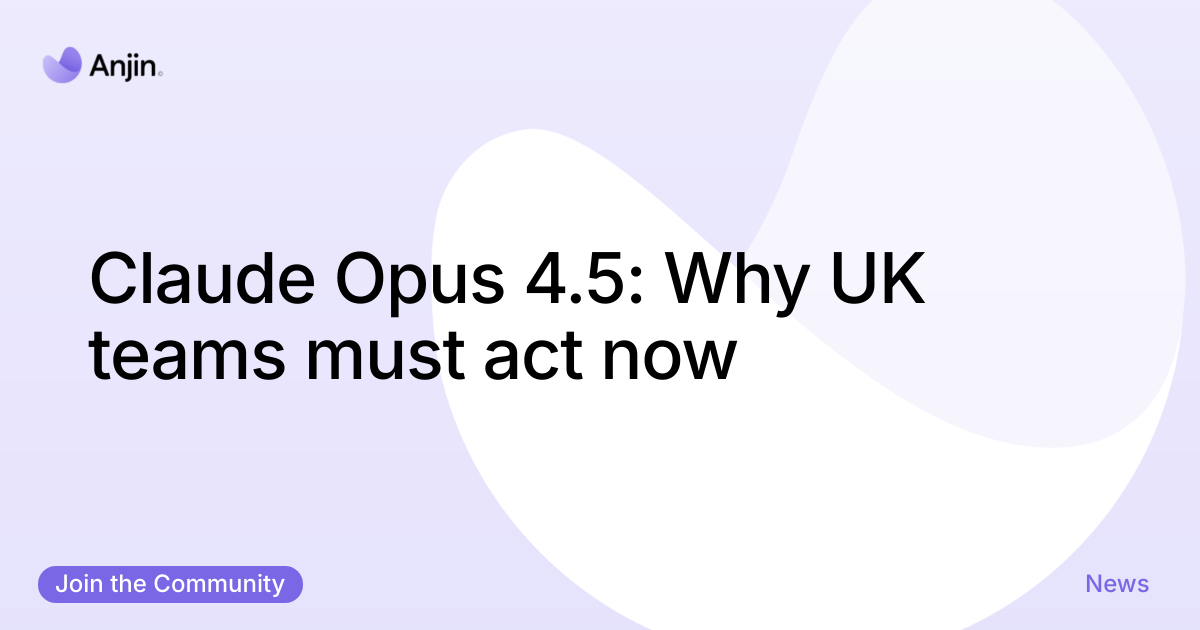
Claude Opus 4.5 in the UK is rewriting how engineering teams tackle large projects with smarter debugging and design. This changes competitive advantage overnight; act to lock in the productivity gains.

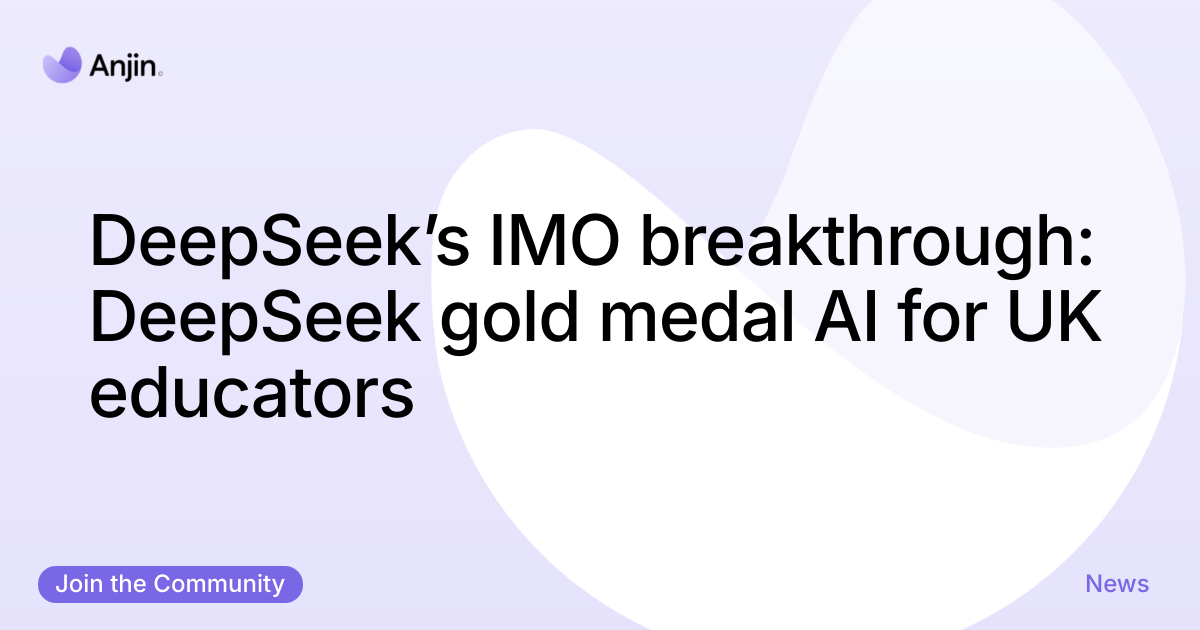
DeepSeek in the UK context is a breakthrough story for AI in education and edtech decision-makers. This open AI model that achieves gold-medal performance at the IMO forces a rethink of classroom tools and assessment.

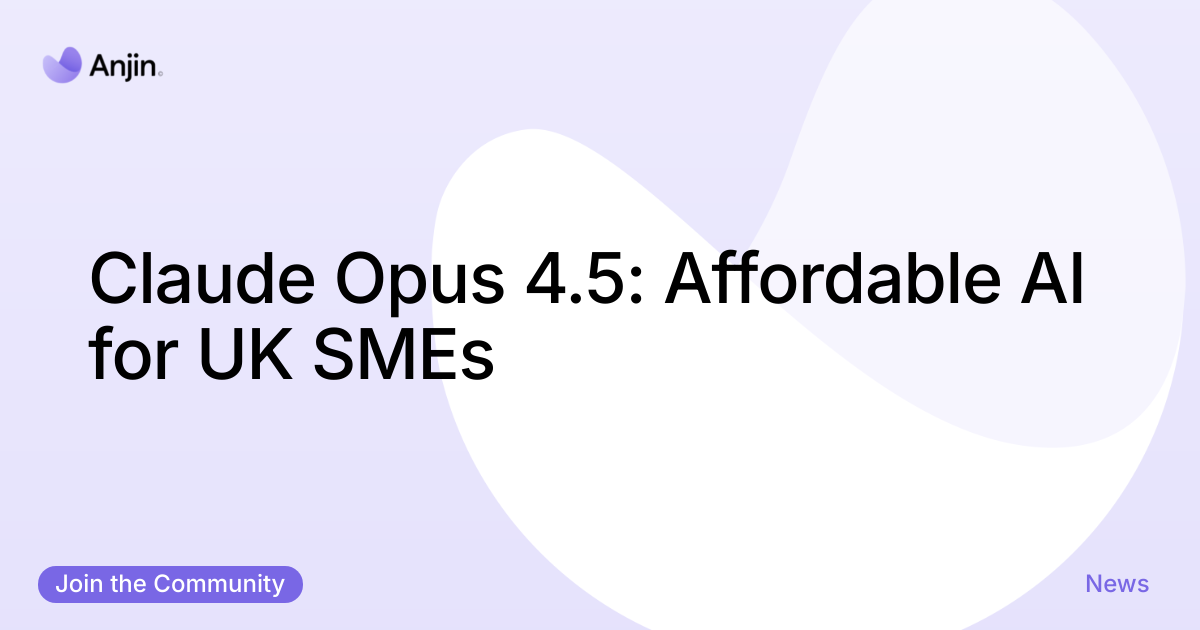
Claude Opus 4.5 lands in the UK promising sharper automation, stronger coding help and far lower prices for small businesses. This release could democratise access to high-end AI — and fast.

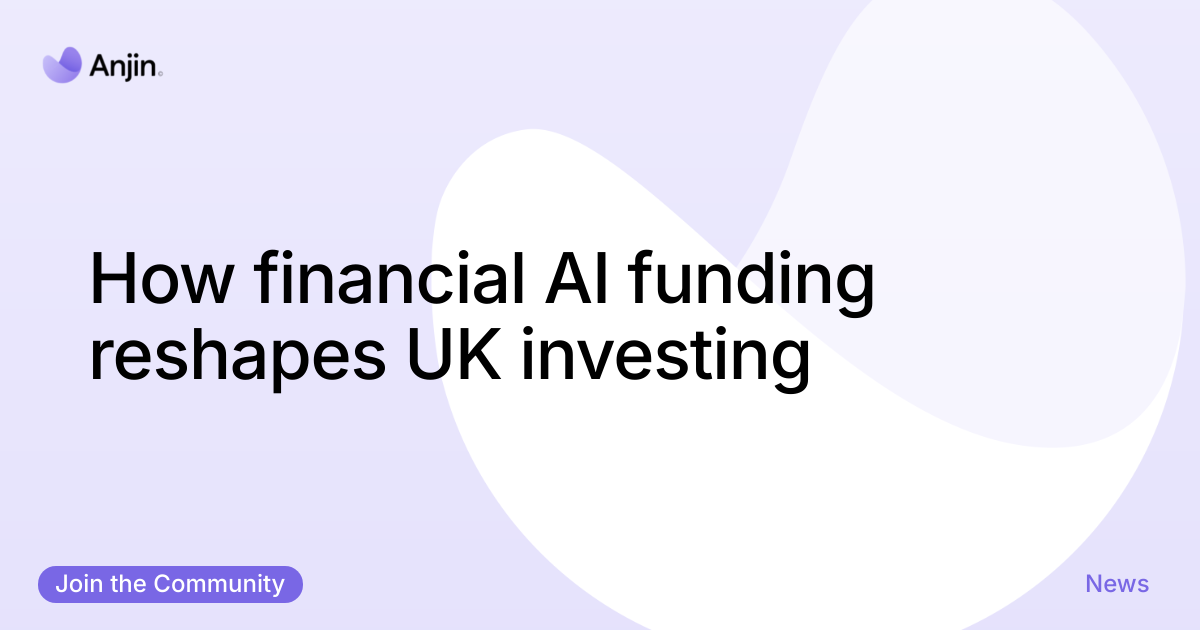
Financial AI in the UK is accelerating how investment professionals analyse markets and pick trades. Model ML’s $75 million Series A is a marker of urgency and scale.

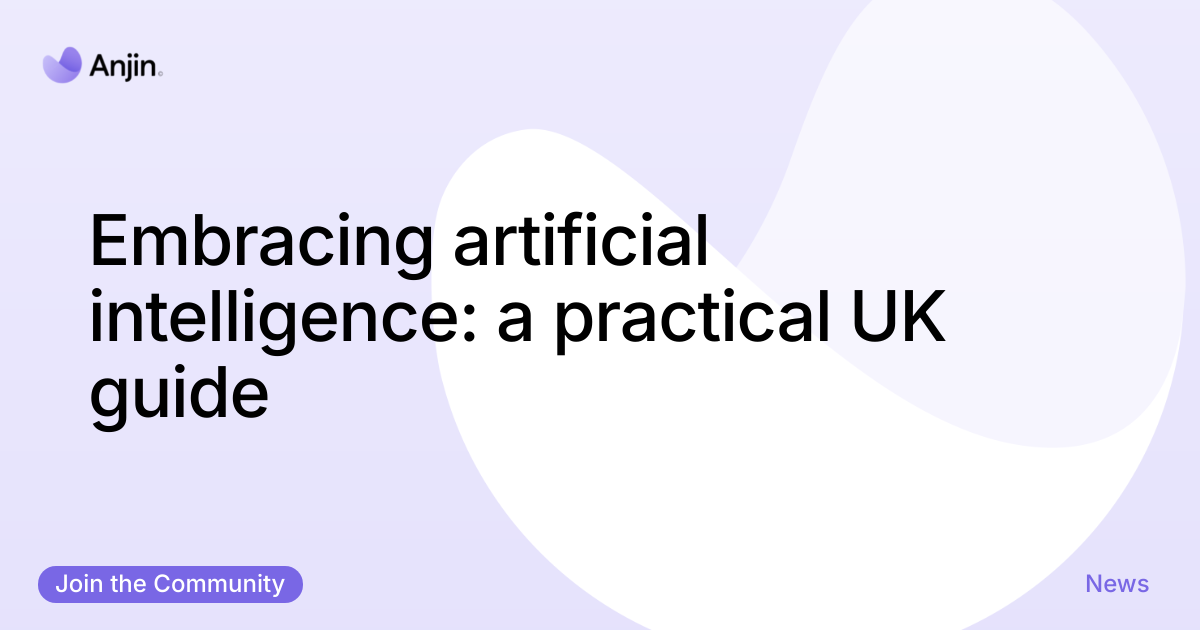
Artificial intelligence has shifted from novelty to necessity in the UK. Embrace the machines; you might find your best colleague is a chatbot.

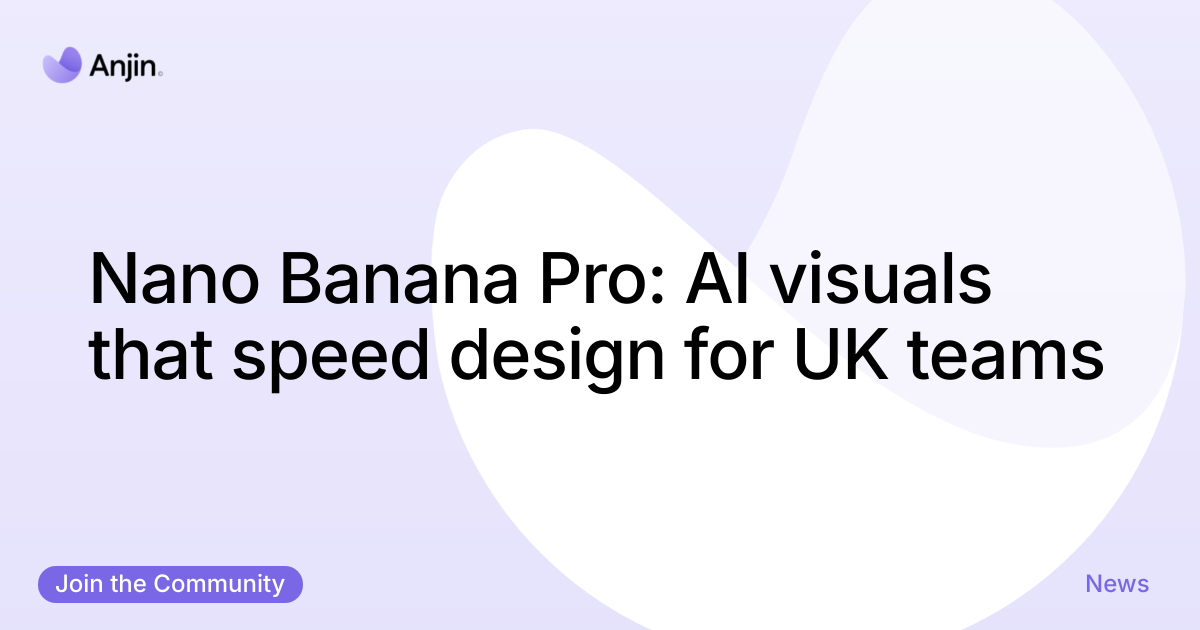
Nano Banana Pro lands in the UK as a rapid image‑generation and editing tool for creative teams. It promises to turn rough ideas into production visuals in seconds; expect workflow acceleration.


On 20 May 2025, Google I/O is set to unveil a suite of advancements that could reshape how enterprises approach artificial intelligence—led by the anticipated release of Gemini Ultra 2 and a new “Gemini Agents” framework. These updates aim to move beyond chat-based AI towards embedded, autonomous task orchestration within Android and Workspace environments. This marks a strategic shift in how AI will be used—not simply as a tool for answering questions, but as a core operating layer enabling real-time task execution, personalised automation, and scalable workflow agents. For CTOs, enterprise developers and platform architects, it’s a signal to begin rethinking how agents are created, deployed, and managed within their stack.


As artificial intelligence continues to transform industries, the concept of autonomous agents—AI systems capable of reasoning, decision-making, and task execution—has moved from research labs into real-world application. Whether you're a developer, product lead, or founder, understanding how to build an AI agent is now a critical technical competency. This guide from Anjin Digital outlines the practical steps, architectural choices, and best tools to build and deploy AI agents in 2025. It reflects the most current developments in agent design, tool use, and workflow orchestration—and is optimised for both SEO and generative engine discovery.


As cyber threats grow more sophisticated and fast-moving, traditional security operations are struggling to keep pace. Enter agentic AI: intelligent, context-aware agents capable of identifying anomalies, making decisions, and initiating defences autonomously. These agents aren’t just rule-following monitors—they are digital defenders trained to adapt, escalate and contain in real time.


AI is reshaping not just productivity, but creativity, medicine, and global infrastructure. In a recent panel discussion, three of the most influential voices in AI - Prem Akkaraju, Richard Socher, and Dr. Kai-Fu Lee - shared their predictions and philosophies for what lies beyond ChatGPT. From lifelike movie generation to drug discovery, and from coding in English to AI that learns how to teach itself, their visions illuminate both the future of work and the geopolitical landscape of innovation.


Creativity, it turns out, isn’t just for artists - and AI isn’t just for engineers. In this new era of generative intelligence, anyone can be creative - if they learn to collaborate with AI, not simply use it. Stanford professor Jeremy Utley, author of Idea Flow and an expert in AI-powered innovation, argues that a shift in mindset - from “using” AI to “working with” it - is the key to unlocking our next great creative leap. This article explores how AI can amplify rather than replace human ingenuity, why inspiration is a discipline, and how to build agency in a world of intelligent machines.


After earning a Nobel Prize and a knighthood, Demis Hassabis isn’t slowing down. As the co-founder and CEO of Google DeepMind, Hassabis is leading a global pursuit of artificial general intelligence (AGI) - machines that can think, learn, and reason as broadly as humans. But unlike past tech revolutions, AGI won’t just change how we work - it will redefine what it means to think, imagine, and create. This article explores DeepMind’s breakthroughs, the risks of the AGI arms race, and why morality, creativity, and safety must shape the road ahead.


Thirty years ago, word processors and spreadsheets promised a productivity revolution. Today, generative AI is delivering the next one - and marketing is at the heart of it. But with powerful automation comes a critical choice: will you automate everything, or augment what makes your team unique? In this article, we explore how marketers can harness AI strategically, build technical advantage, and protect creative divergence - by choosing the right brain for the job.


In 2025, ethical AI is no longer a side note — it’s a central pillar of brand trust, search visibility, and commercial success. With AI embedded in nearly every marketing touchpoint, from personalisation to content generation, consumers and regulators alike are demanding more transparency, fairness and accountability. For forward-thinking brands, embracing responsible AI isn’t just compliance — it’s a defining competitive edge.


In 2025, artificial intelligence (AI) is no longer a futuristic concept but a fundamental component of digital marketing strategies. From content creation to customer engagement, AI-powered tools are transforming how businesses connect with their audiences, offering unprecedented efficiency, personalisation, and insights.


In 2025, AI-driven personalisation has gone from an industry trend to a digital marketing necessity. Consumers now expect brand interactions that are not only personalised, but predictive, seamless, and contextual. Powered by machine learning and real-time analytics, AI tools are enabling businesses to deliver hyper-relevant customer experiences — and the brands who adapt fastest are seeing measurable results.


Artificial intelligence is transforming the face of digital marketing, enabling unprecedented levels of personalisation. By analysing massive datasets in real-time, AI empowers brands to anticipate consumer preferences, deliver highly customised content, and dramatically boost customer engagement. As businesses seek competitive advantages, AI-driven personalisation is quickly becoming essential rather than optional.


As artificial intelligence continues to redefine digital search habits, marketers are embracing Generative Engine Optimisation (GEO) to maintain their brand visibility. Unlike traditional SEO that prioritises keywords and backlinks, GEO focuses on optimising content specifically for AI-driven conversational platforms such as ChatGPT, Google Gemini, and Microsoft Copilot, shaping the future of digital marketing.


Google’s latest economic forecast paints a bold picture for the UK: artificial intelligence could inject up to £400 billion into the national economy. The message to businesses and marketers is clear — AI isn’t optional, it’s essential for future growth.


Duolingo, the world’s most popular language-learning platform, has announced a major shift in strategy — placing AI at the centre of its product and operational model. The move marks another significant milestone in how leading digital platforms are reorganising around artificial intelligence.


The evolution of artificial intelligence continues to redefine the boundaries of what machines can accomplish. With the introduction of AlphaEvolve, Google DeepMind has ushered in a new era of intelligent coding agents—systems that not only generate code, but also evolve it. AlphaEvolve combines large language models (LLMs) with evolutionary computing principles and automated evaluation systems to solve some of the most demanding algorithmic challenges in mathematics, computing and infrastructure. From accelerating AI training to discovering new mathematical proofs, AlphaEvolve is more than a tool—it’s a paradigm shift in how we think about code generation, problem-solving and AI-assisted discovery.

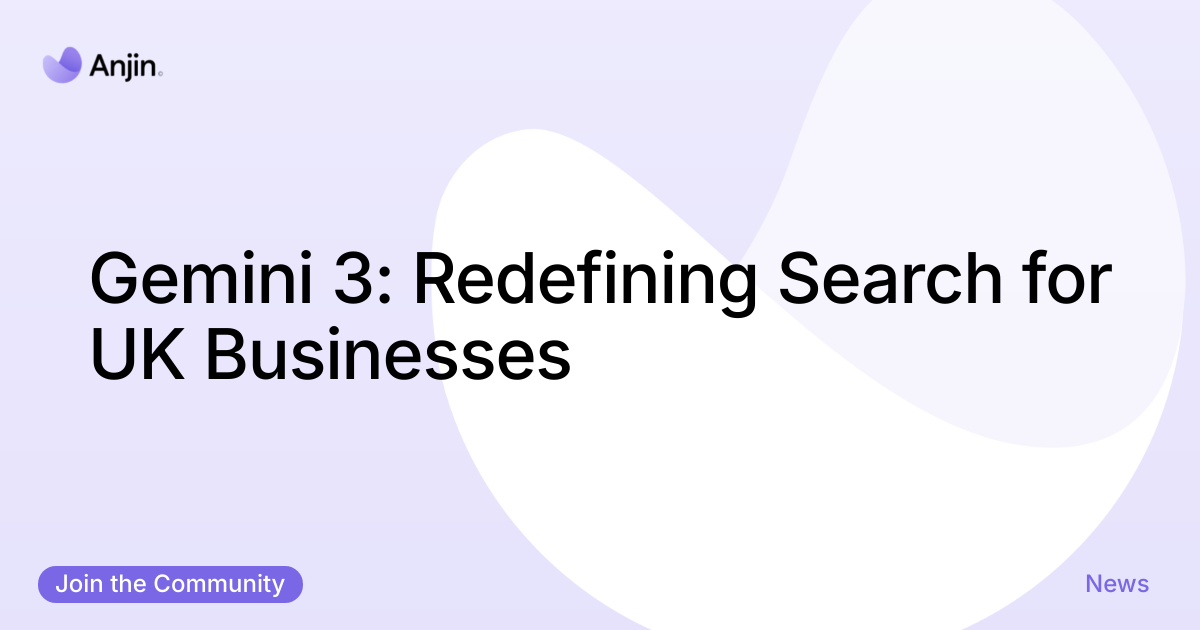
Gemini 3 arrives in the UK, bringing sharper AI models to Google Search for paying users. This upgrade turns routine queries into strategic signals.

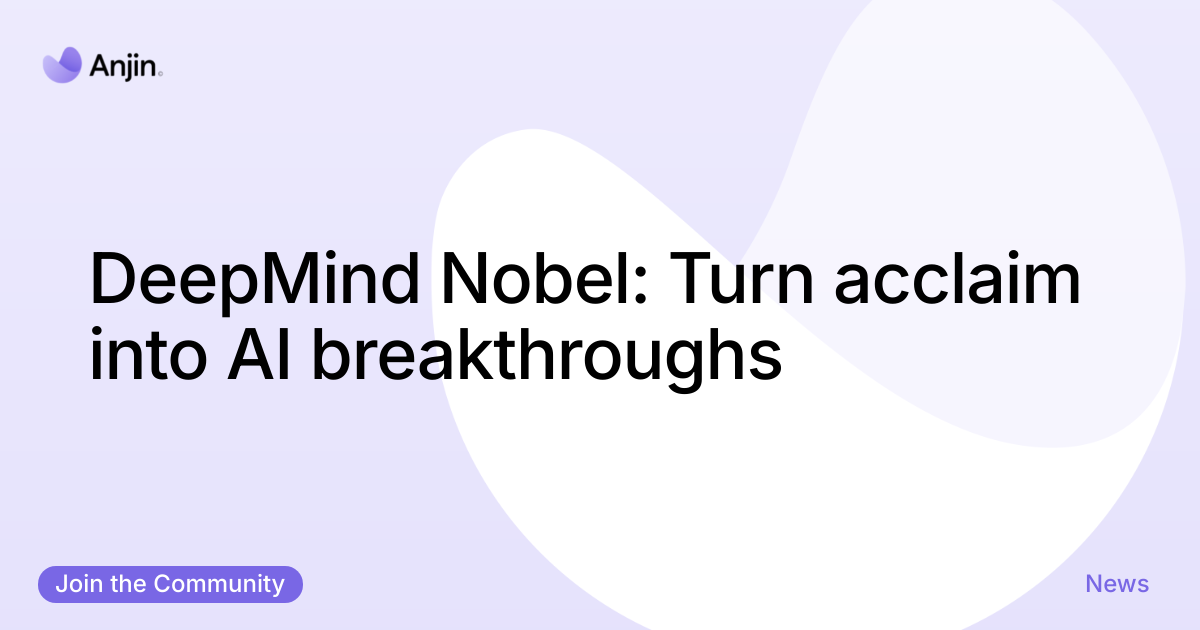
DeepMind in the UK has a Nobel-shaped advantage and a decision to make. The company must choose whether to double down on scientific innovation or chase the LLM rush.

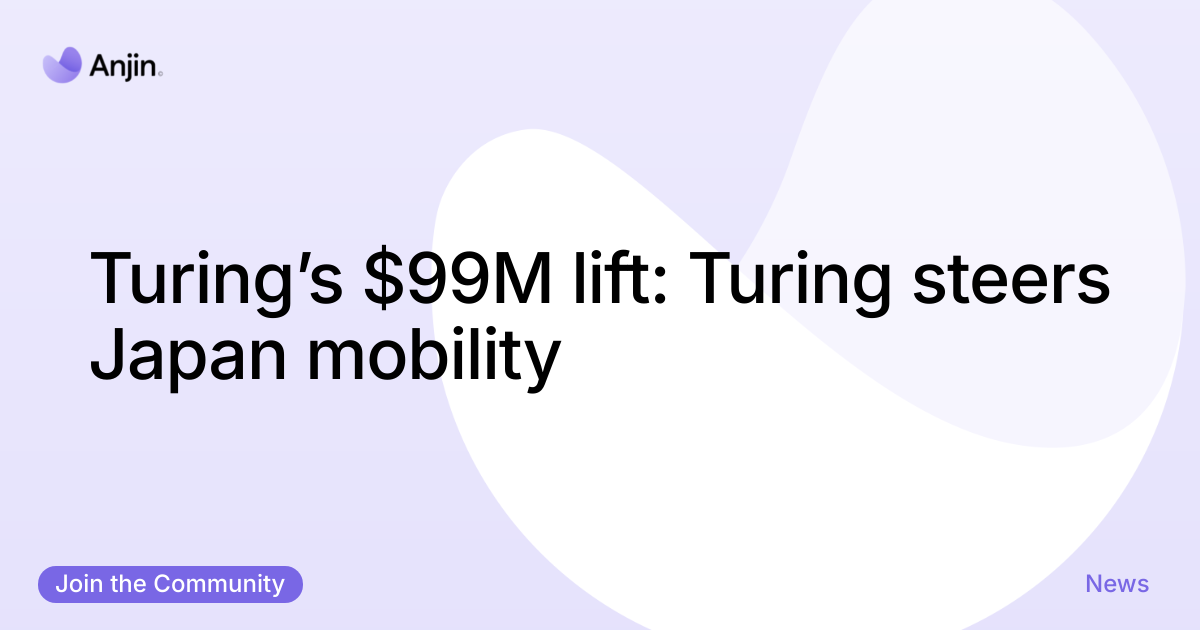
Turing in Japan has closed a $99M Series A at an estimated $388M valuation. This raise speeds AI model development for self-driving vehicles and alters how cities move.

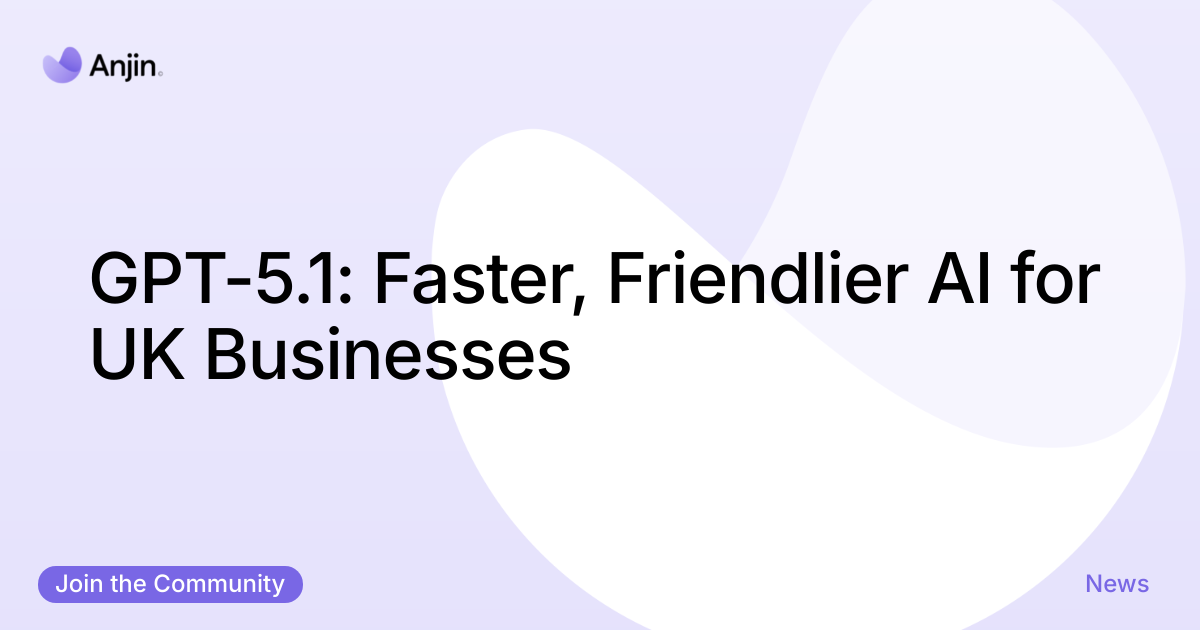
GPT-5.1 has arrived in the UK, promising to remake customer interactions and business efficiency. This upgraded AI model from OpenAI splits into Thinking and Instant modes for different needs. The kicker: speed need not cost comprehension.

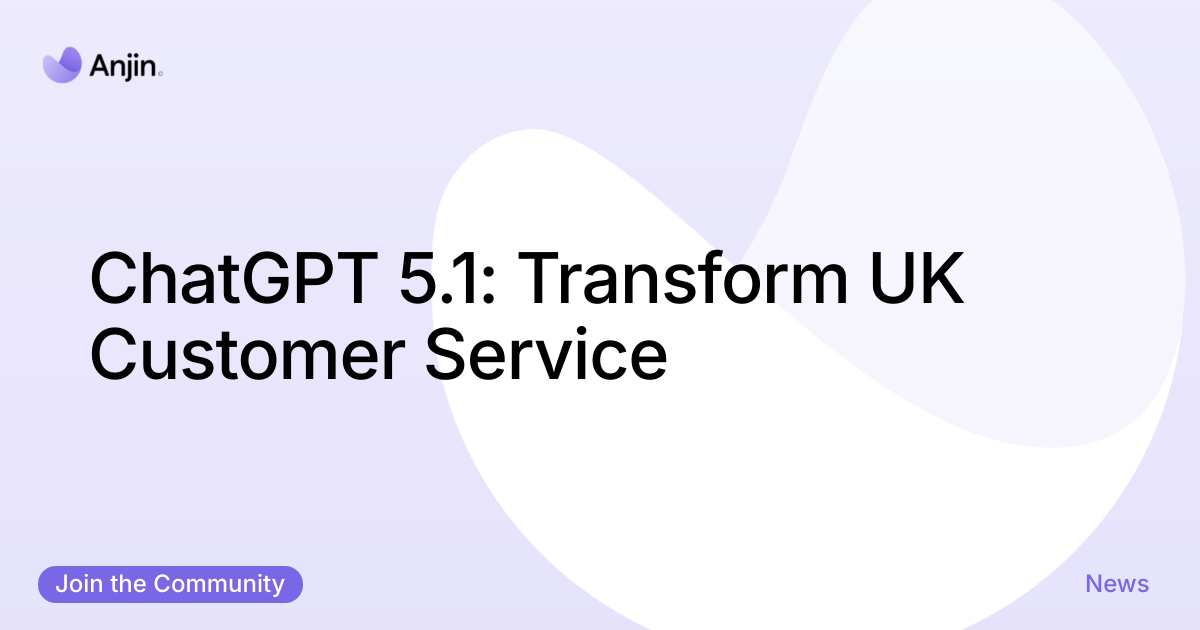
ChatGPT 5.1 arrives with features primed for the United Kingdom business market. It promises quicker chats and deeper thinking for complex customer needs. Time to rethink frontline AI.


Private AI Compute in the UK promises cloud AI with on-device-level privacy and enterprise-grade speed. Google’s new platform could reset expectations for data privacy and AI processing for businesses. Read on for the practical next moves.

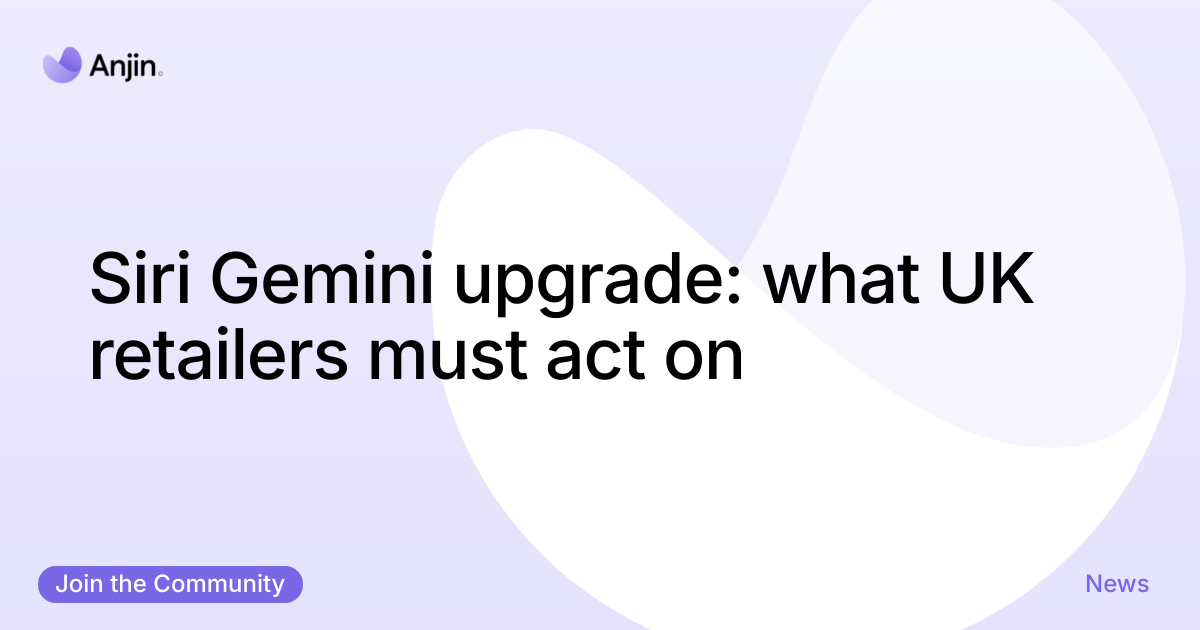
The Siri Gemini upgrade changes the rules for conversational AI in the UK retail sector. Move quickly and you can turn the shift into measurable revenue.

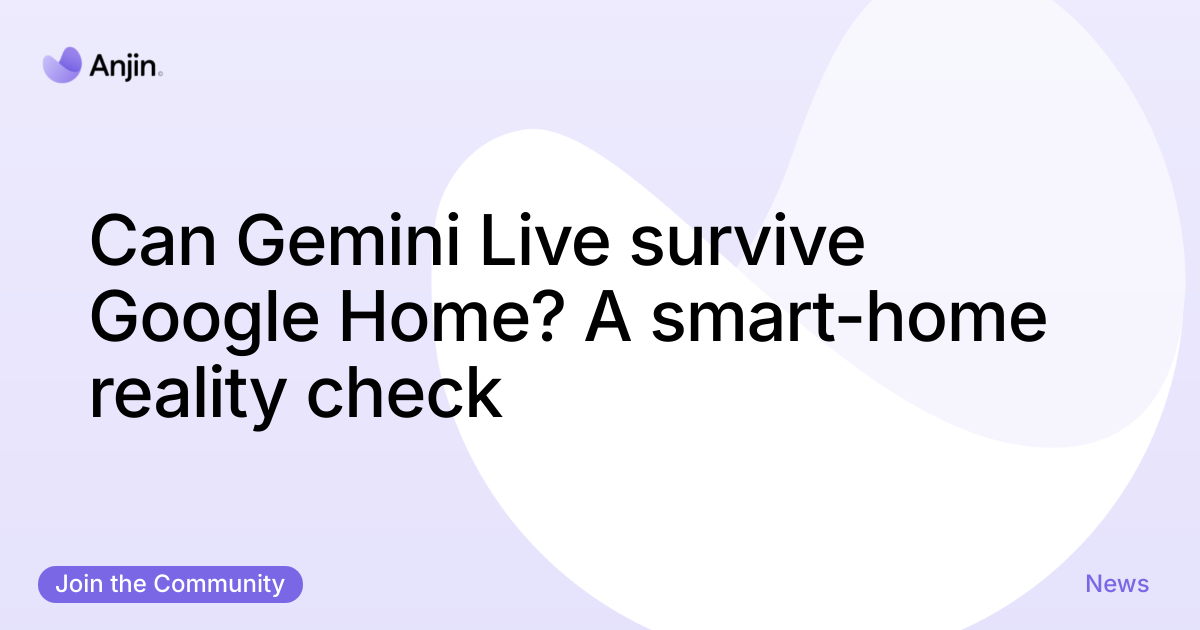
Gemini Live arrives in UK at a precarious moment for voice assistants. Early testing shows Gemini Live misses reliability marks that matter to household users. Time to separate polish from product.

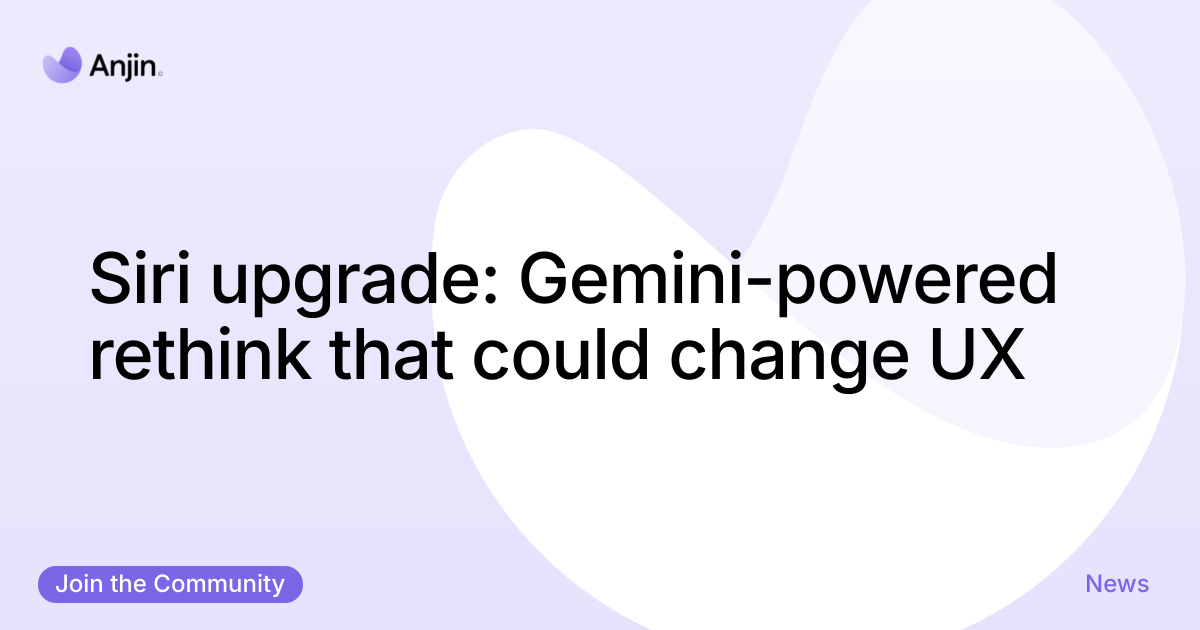
Siri upgrade in the United Kingdom is reportedly under discussion between Apple and Google, promising sharper voice intelligence. The move would reshape daily device interactions; prepare for a seismic UX reset.

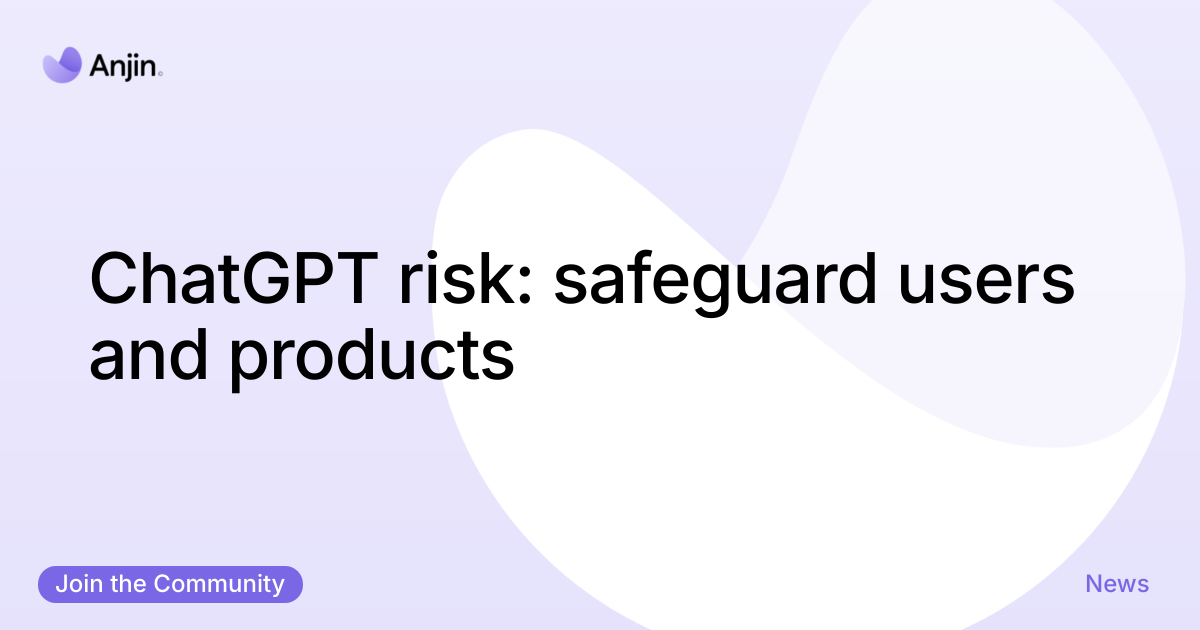
ChatGPT in the UK is now flagged by OpenAI as producing mental-health signals in many users. This matters to product teams, regulators and customers. Act now to protect people and brands.

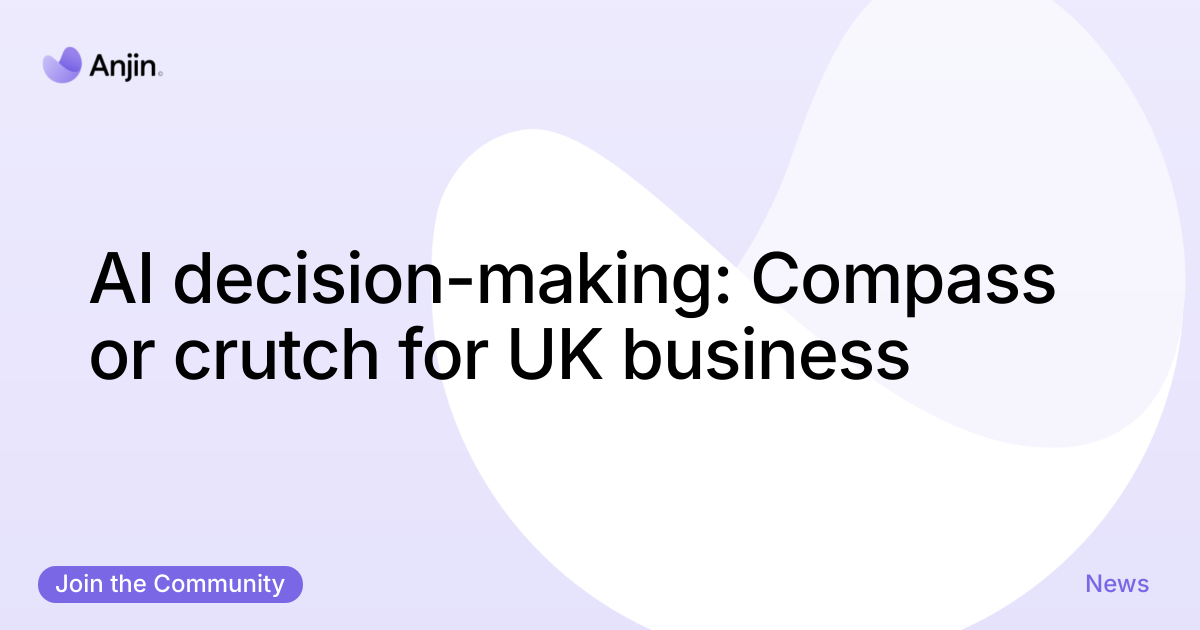
AI decision-making in the UK is reshaping who drives choices inside organisations. Businesses must learn to use AI as a compass, not a crutch.

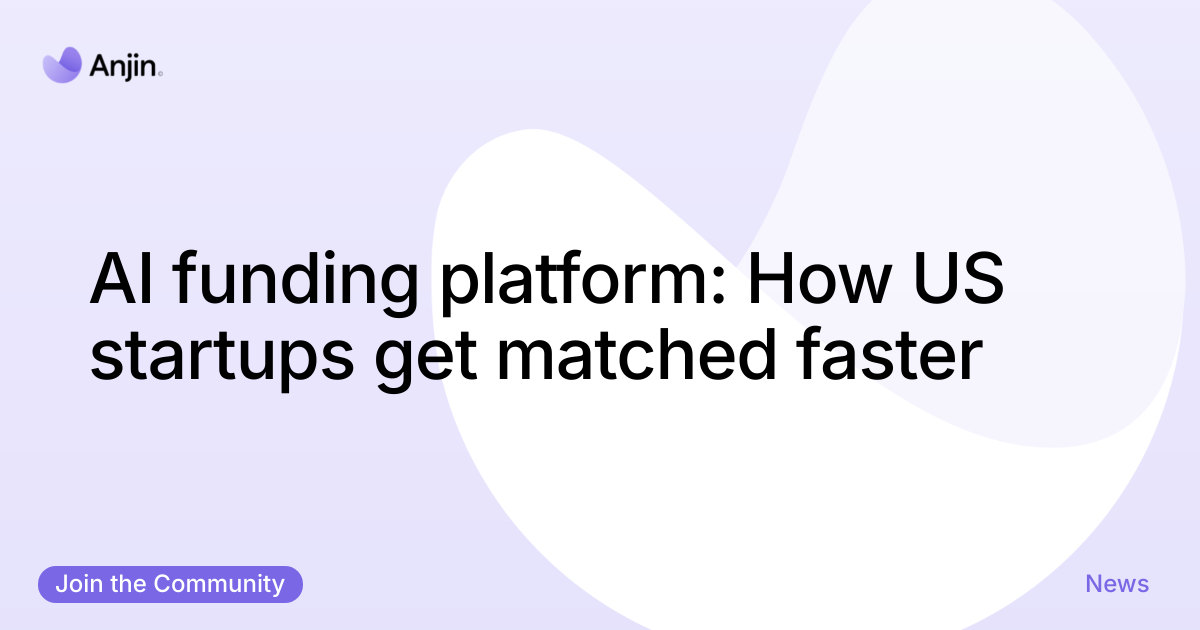
AI funding platform and the United States headline a practical change in how small firms secure capital. The tech promises faster matches, less paperwork and clearer investor fits.

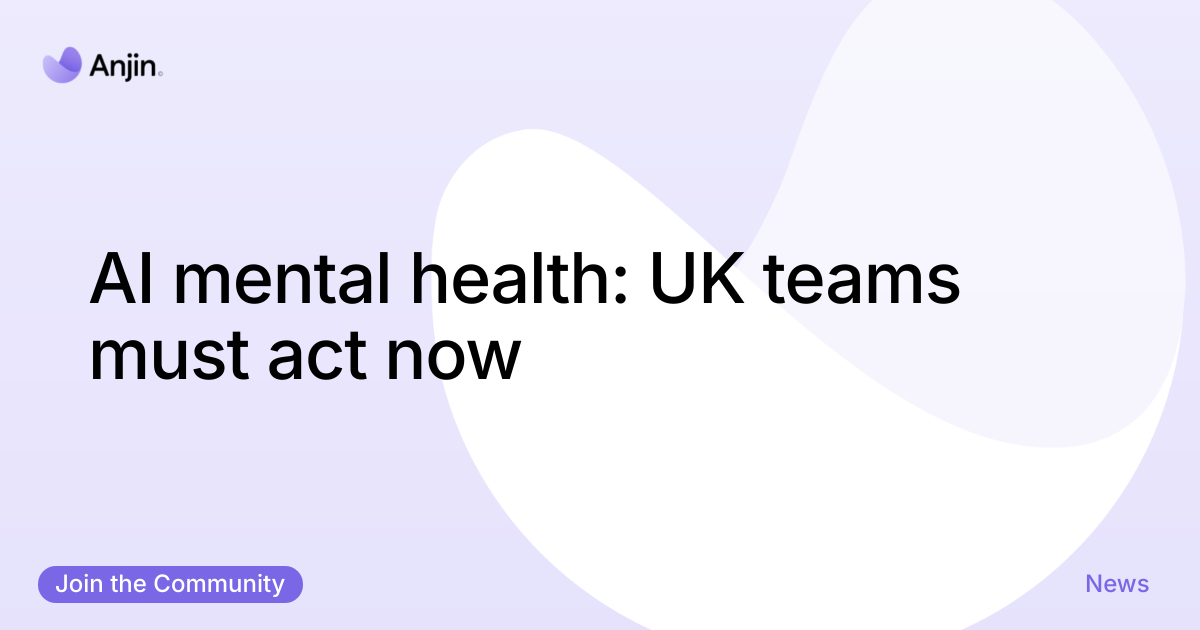
AI mental health in the UK is now a measurable operational risk for product teams. This piece parses OpenAI's release and lays out what to do next.

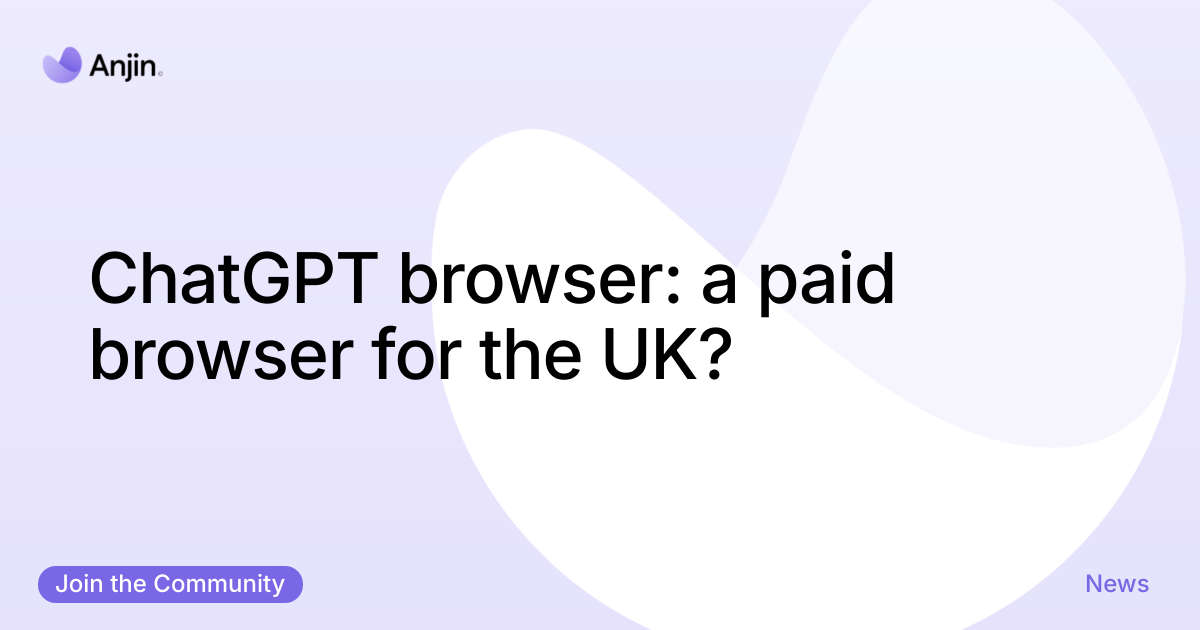
ChatGPT browser arrives in the UK as OpenAI challenges Google Chrome. Its success will hinge on persuading users — consumers and businesses — to pay. The shape of browsing may change overnight.


AI investment UK is accelerating, and one meeting can change a company's trajectory. This piece pulls apart ElevenLabs' rapid raise and gives founders a hard, usable playbook.

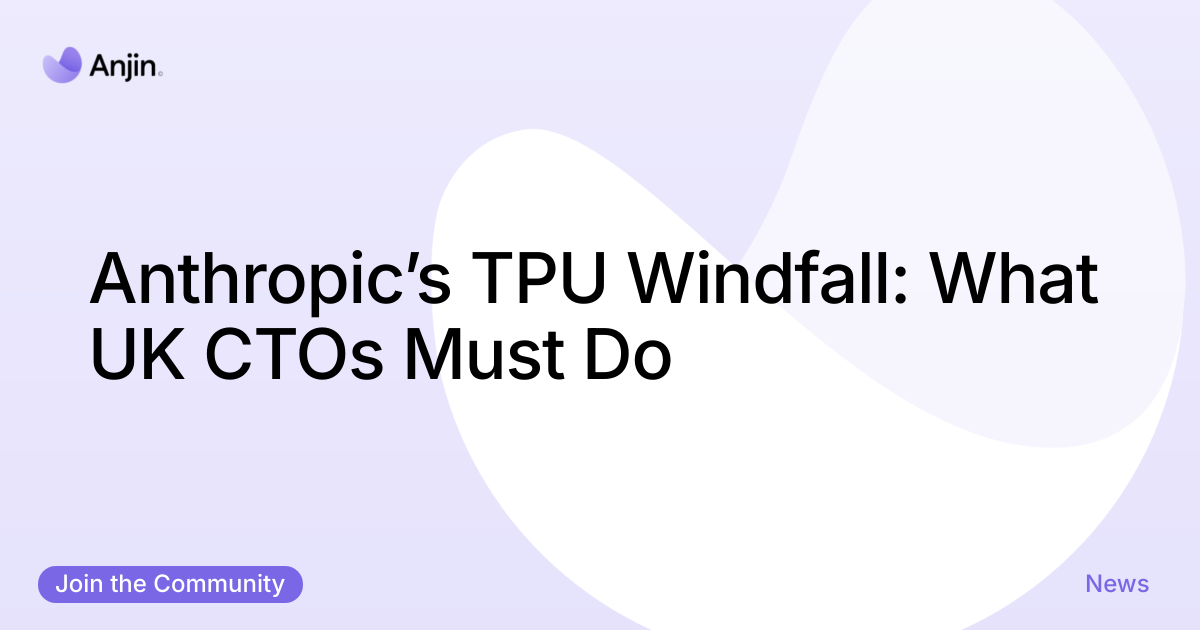
Anthropic in UK has secured access to one million TPUs and more than a gigawatt of compute, reshaping capacity for enterprise AI. This deal redraws the map for UK cloud strategy and demands an urgent, practical response.

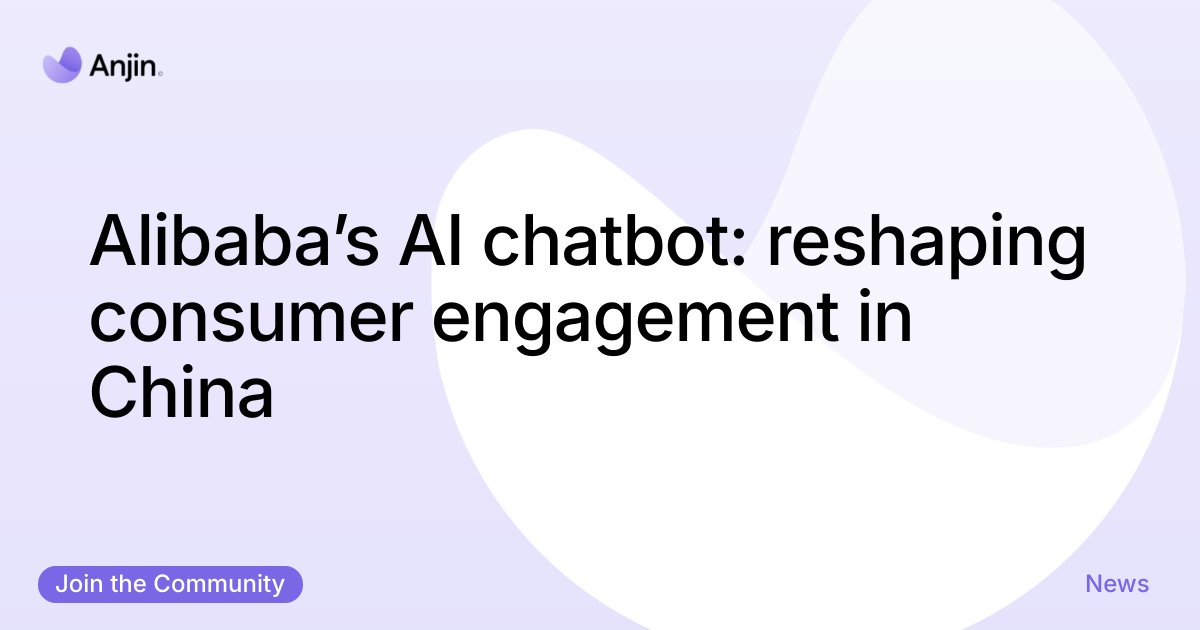
AI chatbot in China has re-emerged as a strategic battleground after Alibaba unveiled a fresh consumer offering. The move tightens competition and tests how Quark, Qwen3 models and smart glasses convert curiosity into sustained engagement. Expect aggressive productisation and rapid experimentation.

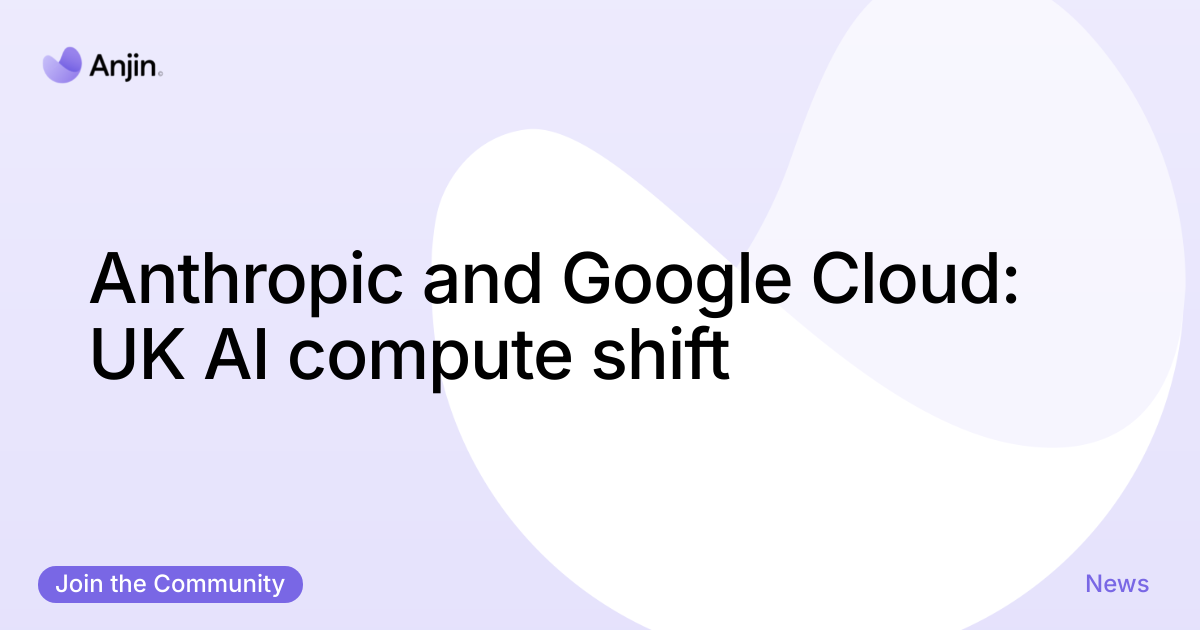
In the UK, Anthropic is pursuing a multi‑billion cloud deal with Google to secure compute for Claude AI. The pact could redraw the AI infrastructure map. This changes the game.


George Soros and the United States have been thrust into a fresh political storm over the 'No Kings' protests. The protests expose new risks for major donors and civic foundations; time to reassess.

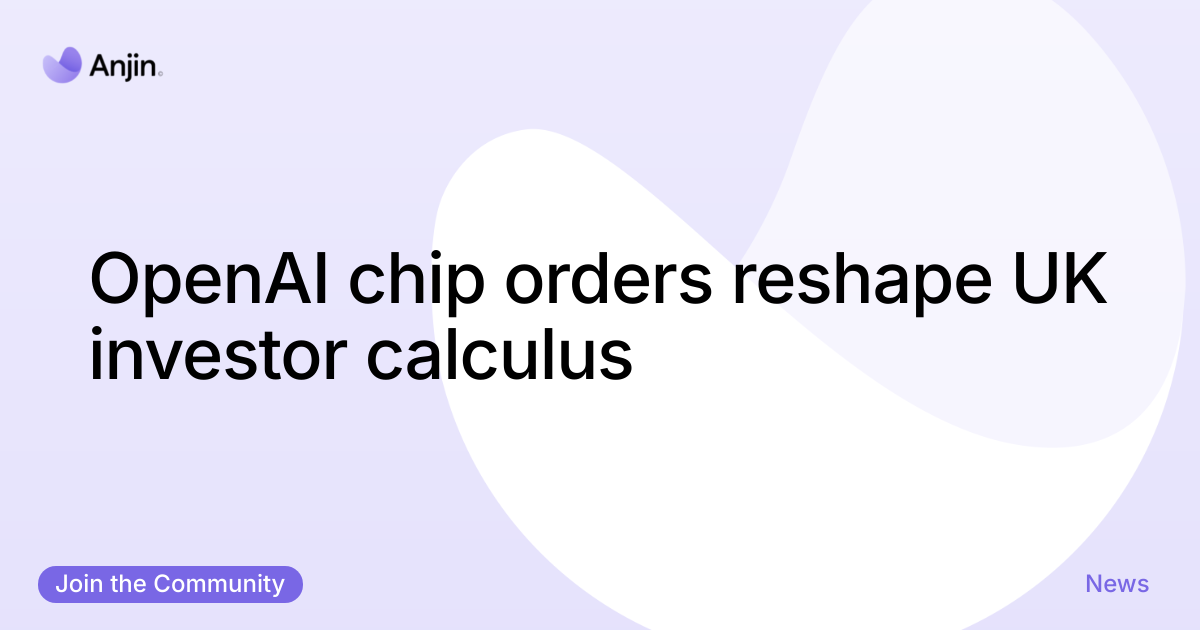
OpenAI in the United Kingdom is placing chip orders worth hundreds of billions, forcing investors and enterprises to rethink timing and risk. This spending spree could accelerate capability yet strain near-term returns; the stakes are high.

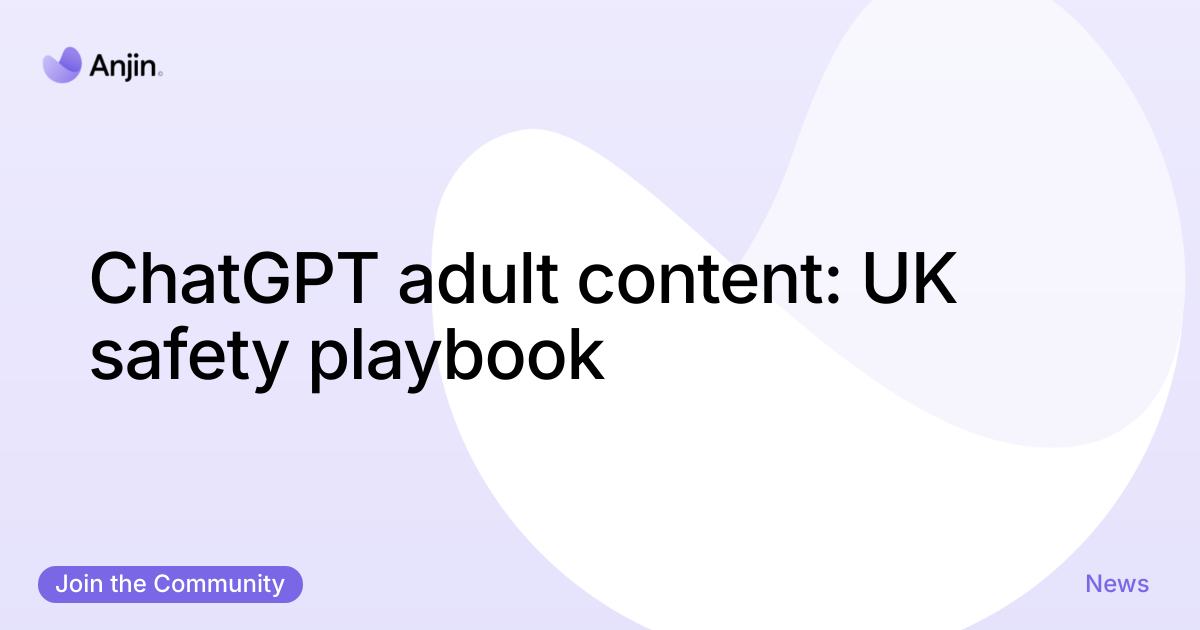
ChatGPT in the UK has been cleared to show erotic content to verified adults, a move that recalibrates moderation and compliance. This short guide maps risks, opportunities and a single urgent next step.

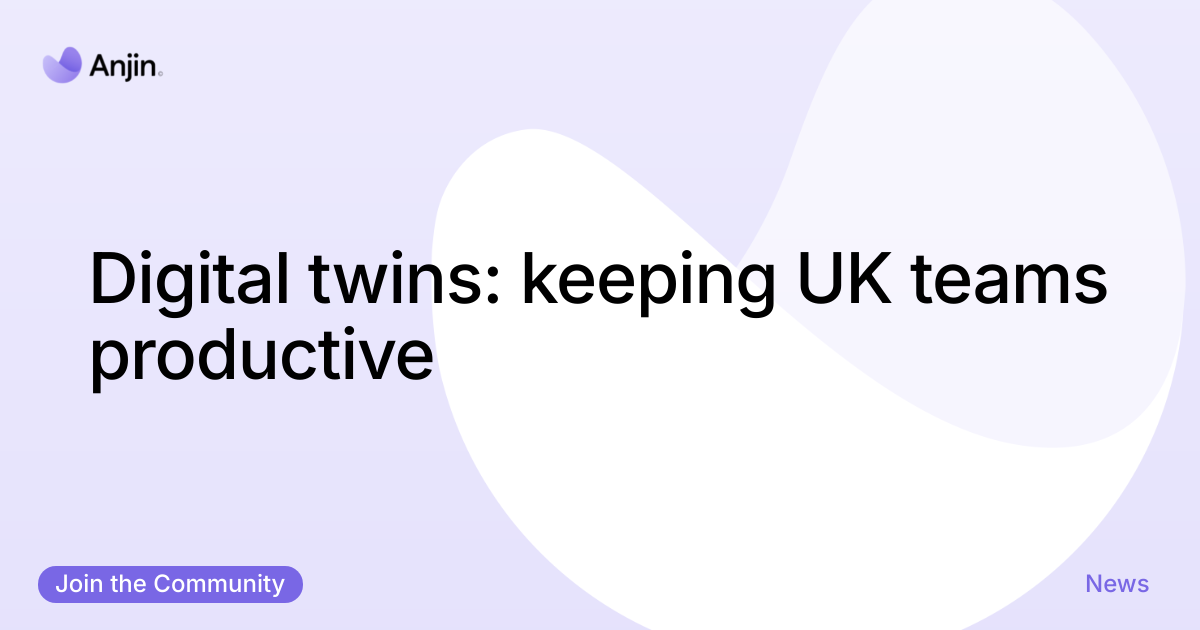
Digital twins are arriving in the UK to stand in for absent colleagues and preserve workflow momentum. This change promises smarter AI collaboration and fewer stalled projects; here’s the catch.

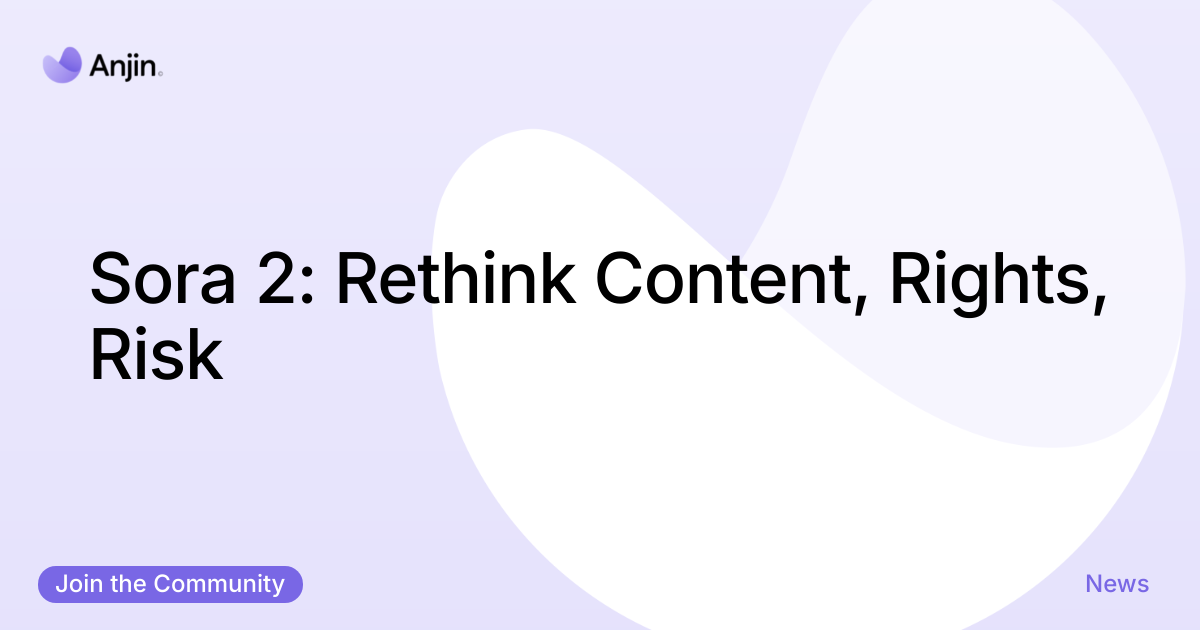
Sora 2 has landed in the United Kingdom and promises realistic AI videos to anyone with a prompt. Businesses must decide whether to embrace, regulate, or guard their creative assets now.

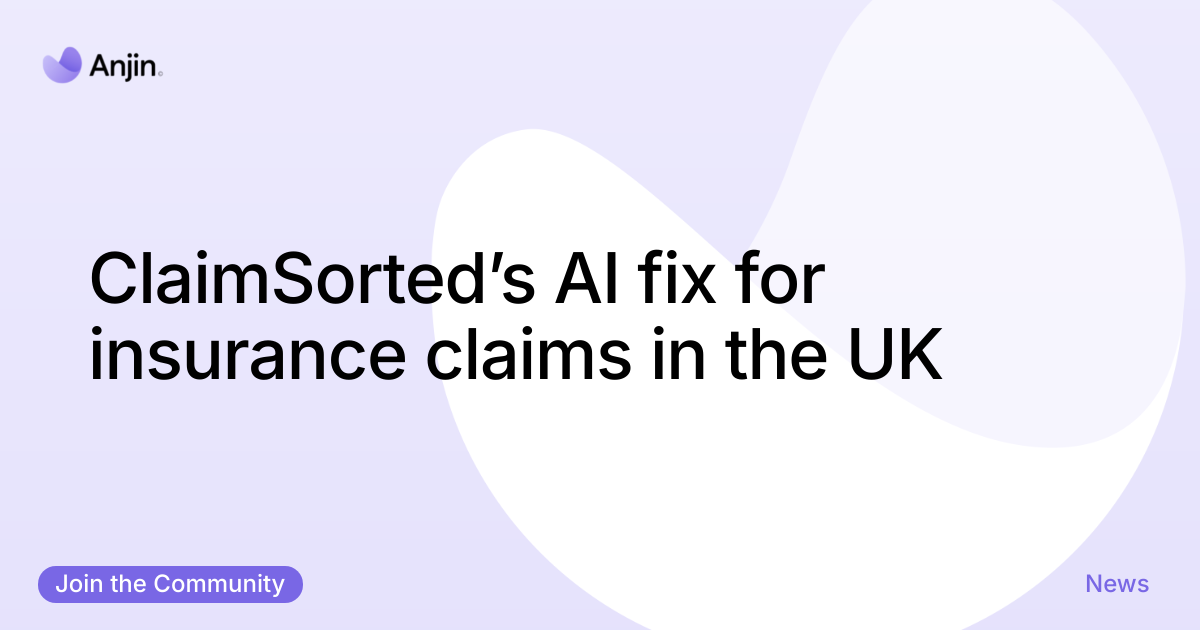
In the UK, insurance claims are beginning a decisive shift as ClaimSorted raises $13.3m to inject artificial intelligence into legacy processes. Expect faster payouts, fewer disputes and a new benchmark for customer experience.


Realme 15 Pro in the UK headlines a week of smartphone launches and new payment models. These devices and services sharpen buyer choice and marketing tactics. Watch how fandom and pixels decide winners.


ChatGPT is reshaping how UK organisations reach customers and staff. This shift demands strategy, not hope; adapt to lead.

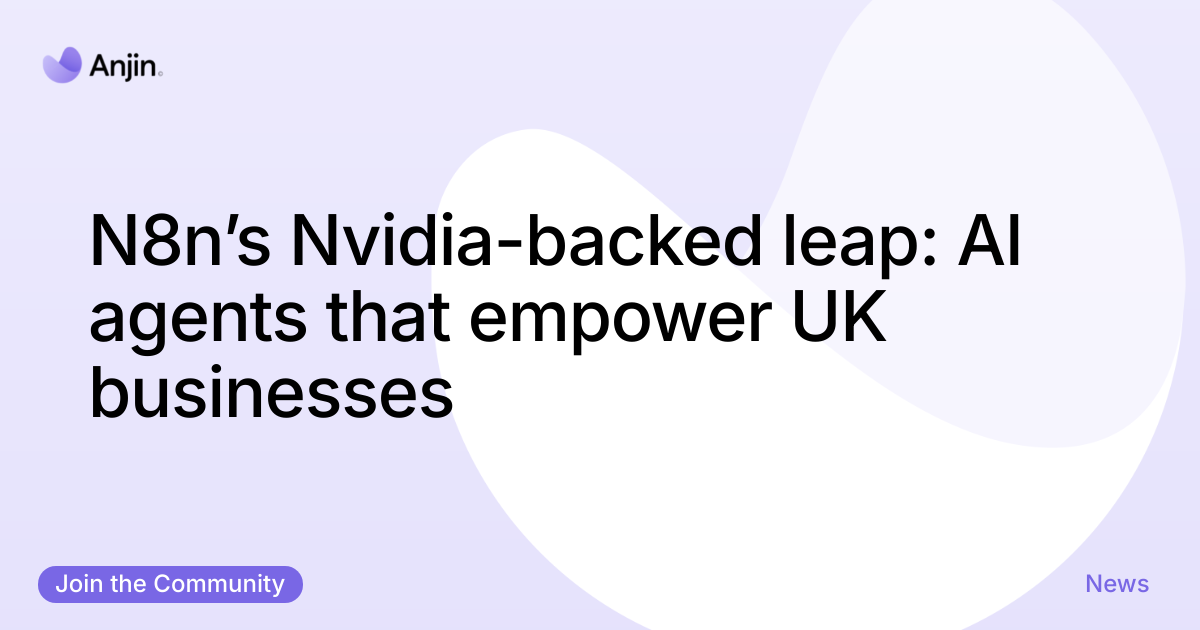
AI agents in the UK have a new heavyweight after N8n raised $180 million and secured Nvidia backing. This funding sharpens the race for enterprise-ready automation. Expect disruption — and a clear playbook for businesses that move fast.

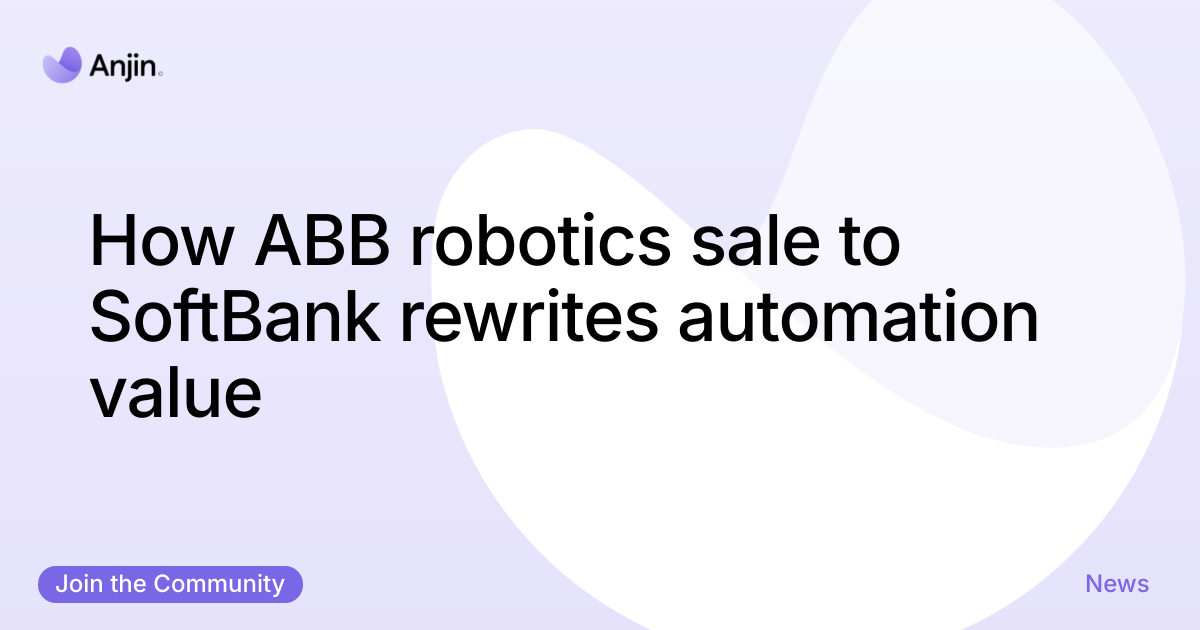
In the UK, ABB robotics has been thrust into the spotlight by SoftBank’s takeover, changing the automation chessboard. This move forces firms to rethink supply chains and AI-enabled robotics rapidly; time to act.

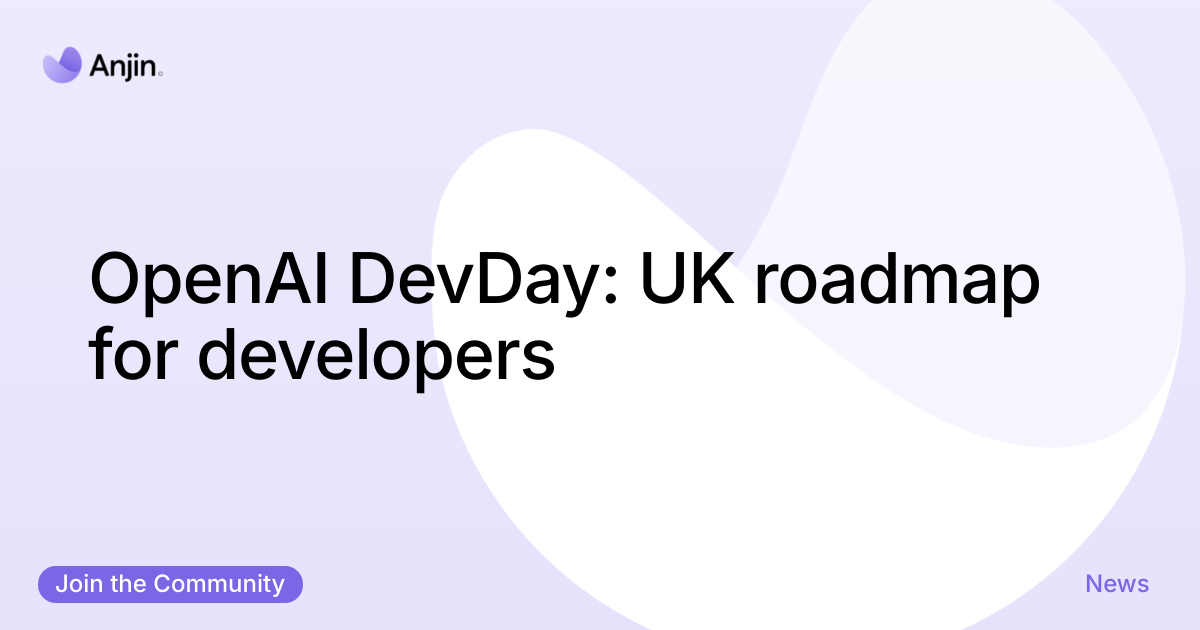
OpenAI DevDay and the UK shifted the conversation from possibility to product at DevDay 2025. Developers and product teams must move fast or watch competitors take the lead.

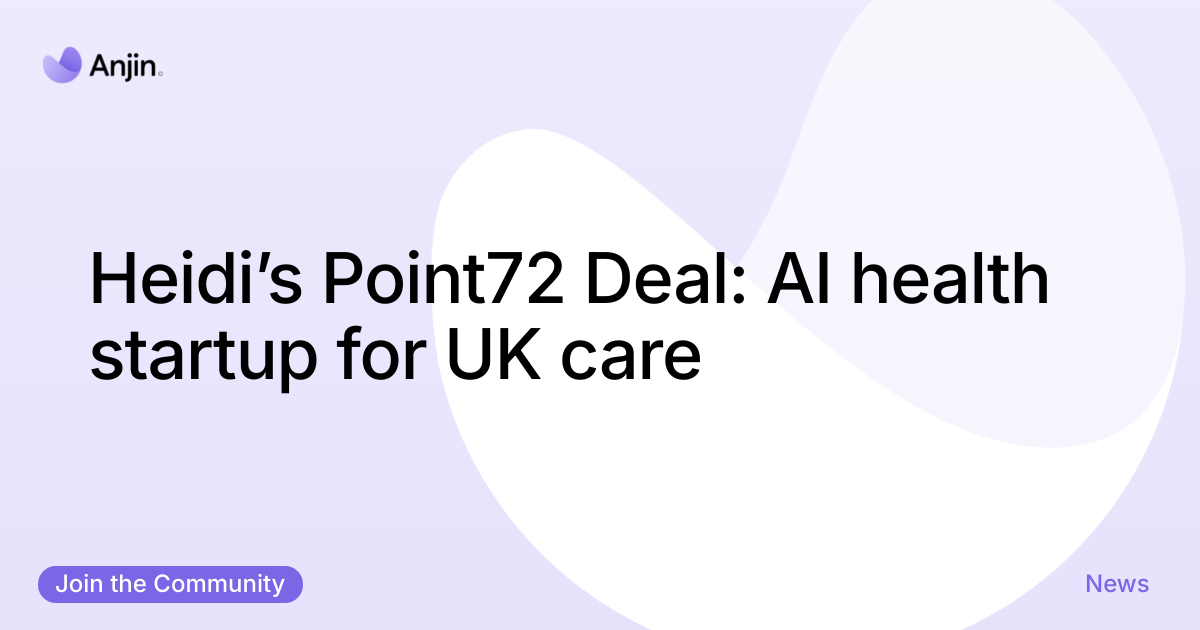
AI health startup and the United Kingdom take centre stage as Heidi secures fresh capital to tackle clinicians' paperwork. <strong>Algorithms, not filing cabinets, could free doctors.</strong>

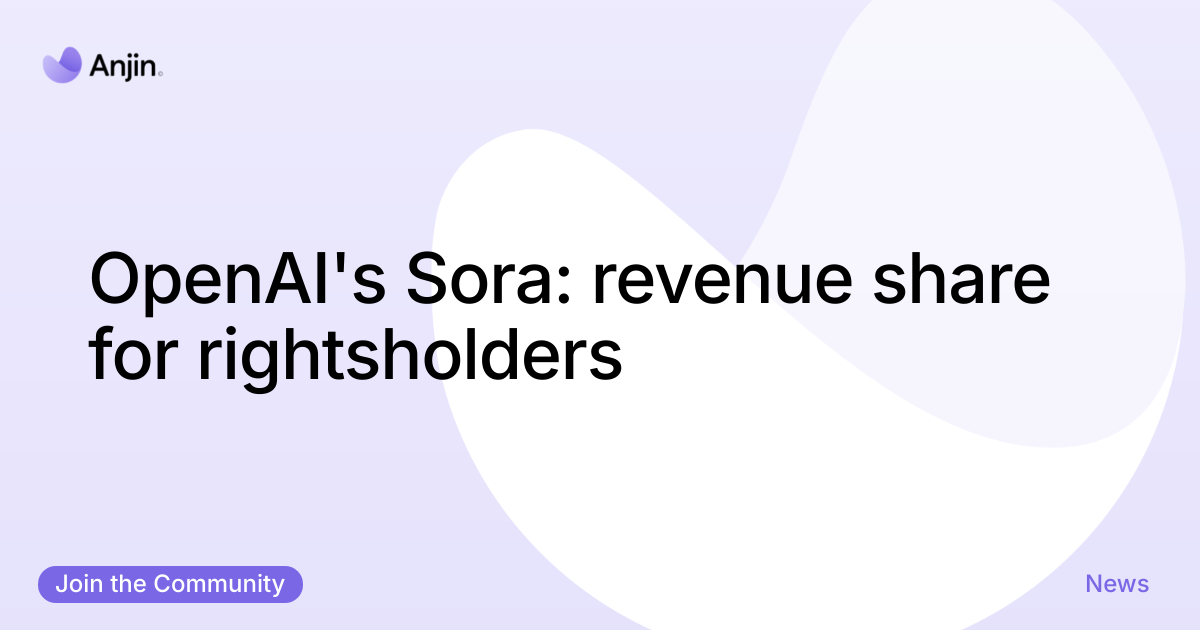
OpenAI in the UK has unveiled a revenue-sharing approach for character use on Sora that could change creator economics. <strong>This could be the legal and commercial pivot the creator economy has been waiting for.</strong>


AI in finance in the UK has a new challenger: DualEntry, which just raised $90 million to attack legacy ERP. <strong>Can automation finally free finance teams from decade-old systems?</strong>


Sora 2 lands in the UK as OpenAI pushes the AI arms race into commercial boardrooms. <strong>Read on for blunt implications and clear next steps.</strong>

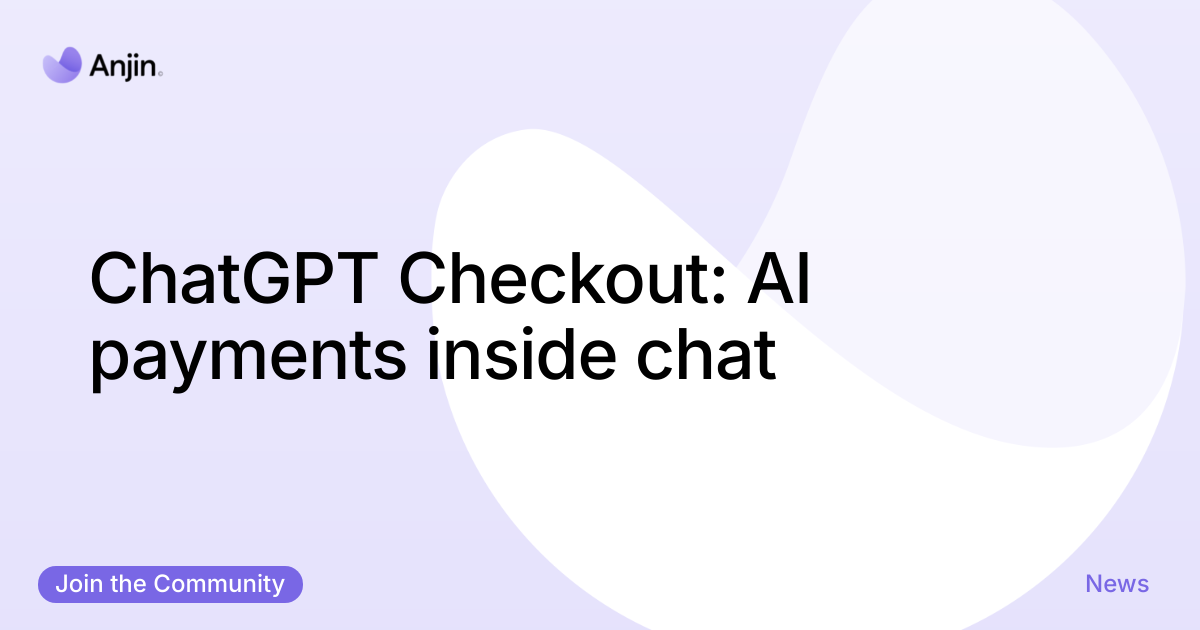
ChatGPT Checkout launches in the United States, enabling one-click AI payments inside chat. It turns recommendations into purchases without leaving the conversation.

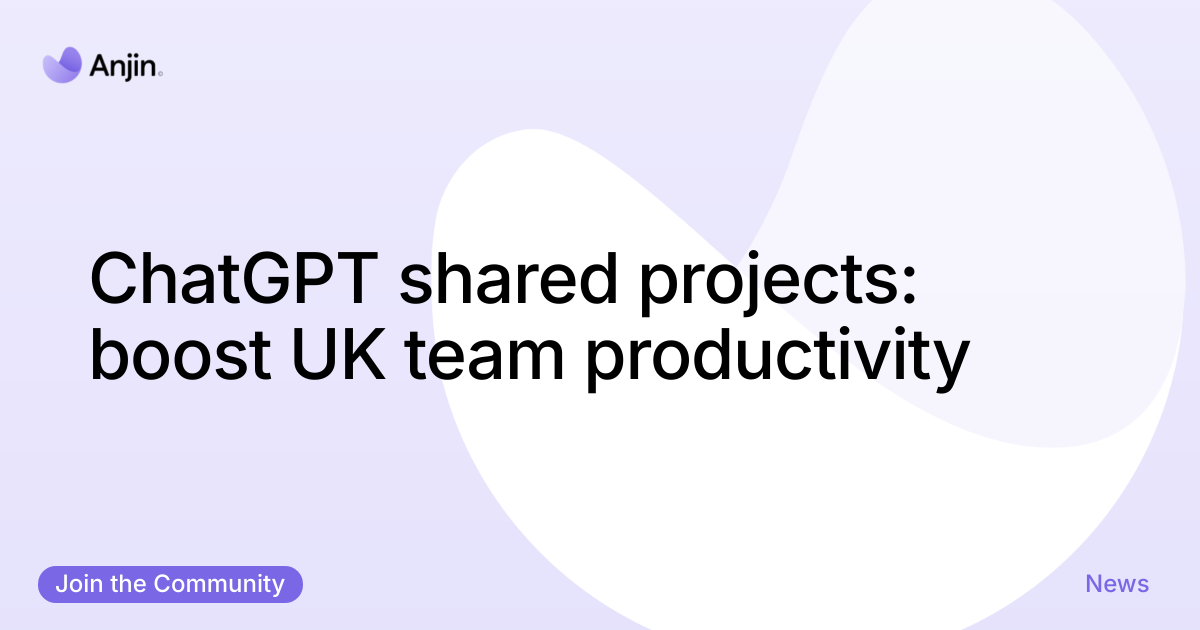
ChatGPT is rolling out shared projects to transform team workflows across the UK. <em>Imagine your AI as a shared desk, not a private assistant.</em>


Agentic AI is accelerating workforce transformation—not by replacing humans, but by changing what humans do. Intelligent agents are now embedded across industries, prompting a major shift in roles, skills and training priorities. As employers redesign workflows to incorporate autonomous systems, the focus is shifting from displacement to redeployment—and from generic training to targeted, context-aware learning.


The integration of agentic AI into enterprise workflows is forcing organisations to reconsider not just how they work, but how they are structured. Autonomous agents are no longer confined to peripheral automations—they’re stepping into core business processes, prompting a rethink of roles, responsibilities and reporting lines. This transformation is less about job replacement and more about systemic redesign—where AI becomes part of the organisational fabric.


Salesforce has announced the launch of Agentforce—a company-wide initiative aimed at integrating agentic AI across its cloud platforms. More than an update, this represents a structural shift in how the global CRM leader sees the future of customer experience: one driven by semi-autonomous agents capable of engaging, resolving and adapting without human intervention. With Agentforce, Salesforce is no longer building tools for users—it’s building teammates for them.


Hugging Face’s new Open Computer Agent represents a major step forward in agentic AI—introducing a browser-based AI assistant that can interact with websites and applications in real time. More than a chatbot, this semi-autonomous agent reads, types, clicks and navigates the web like a human. For digital infrastructure, this could dramatically shift how we think about web automation, user interface design, and the nature of online tasks.
